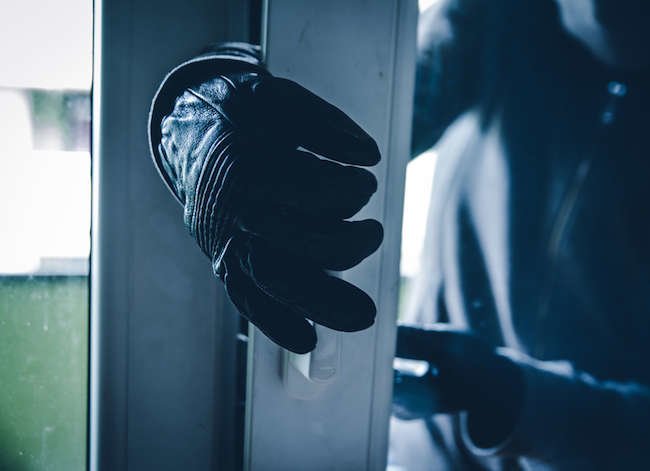We may earn revenue from the products available on this page and participate in affiliate programs. Learn More ›
Step Up Your Home Security
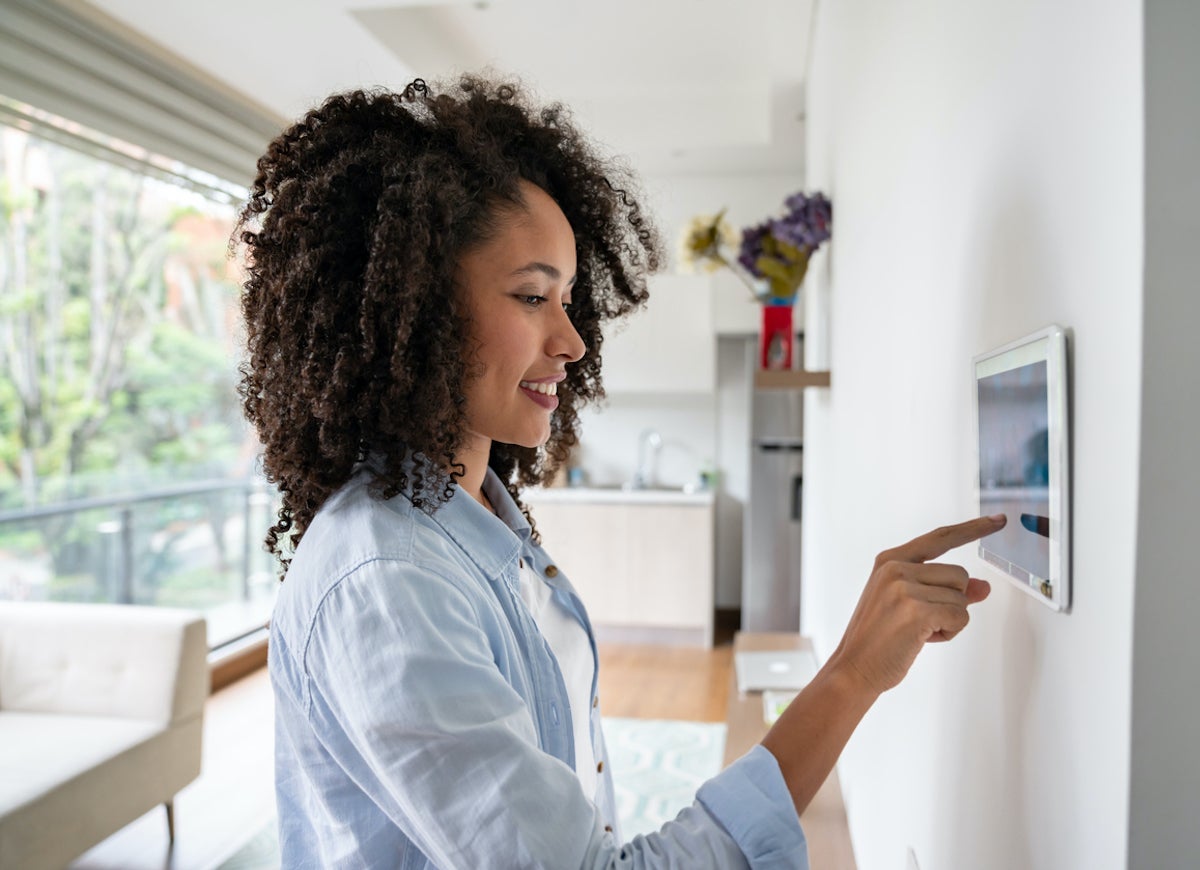
More than 3.5 million burglaries occur each year in the United States, and in more than 1 million of those, a household member was present at the time. Statistics like these can make homeowners feel vulnerable—maybe their home will be next! Fortunately, there are simple steps you can take to beef up your home’s security and prevent break-ins. Click through for 36 of the easiest ways to protect your property from break-ins.
Shine a Light
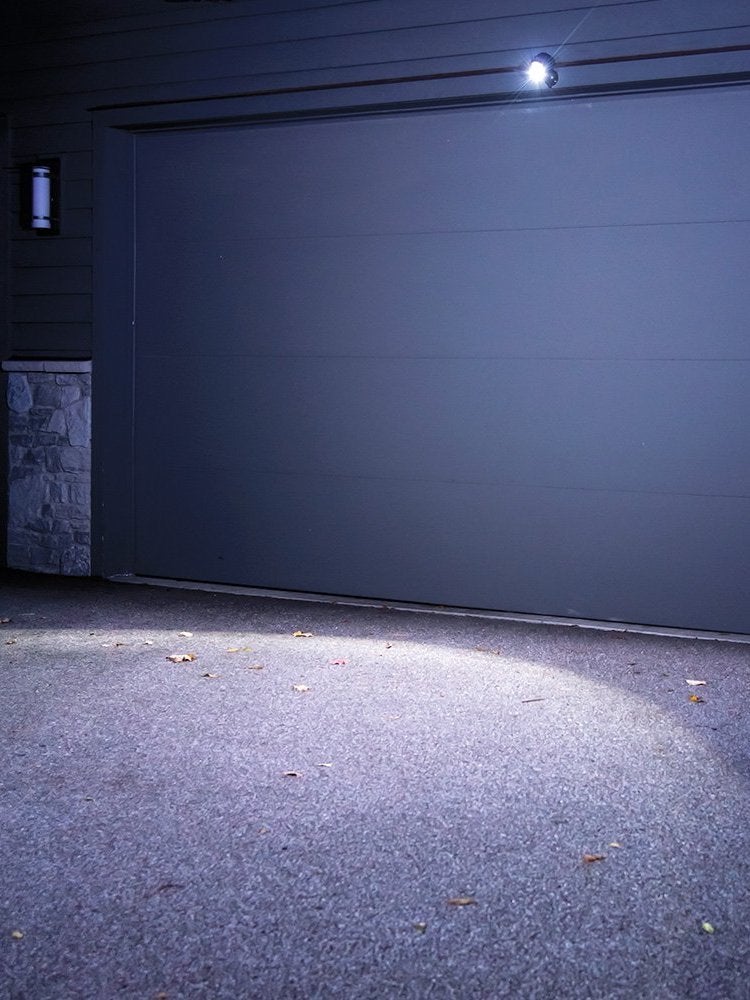
Install motion-sensing outdoor lights around the perimeter of your house to stop prowlers in their tracks. No burglar wants to break into your house when he’s in the spotlight.
Keep Big-Ticket Purchases a Secret
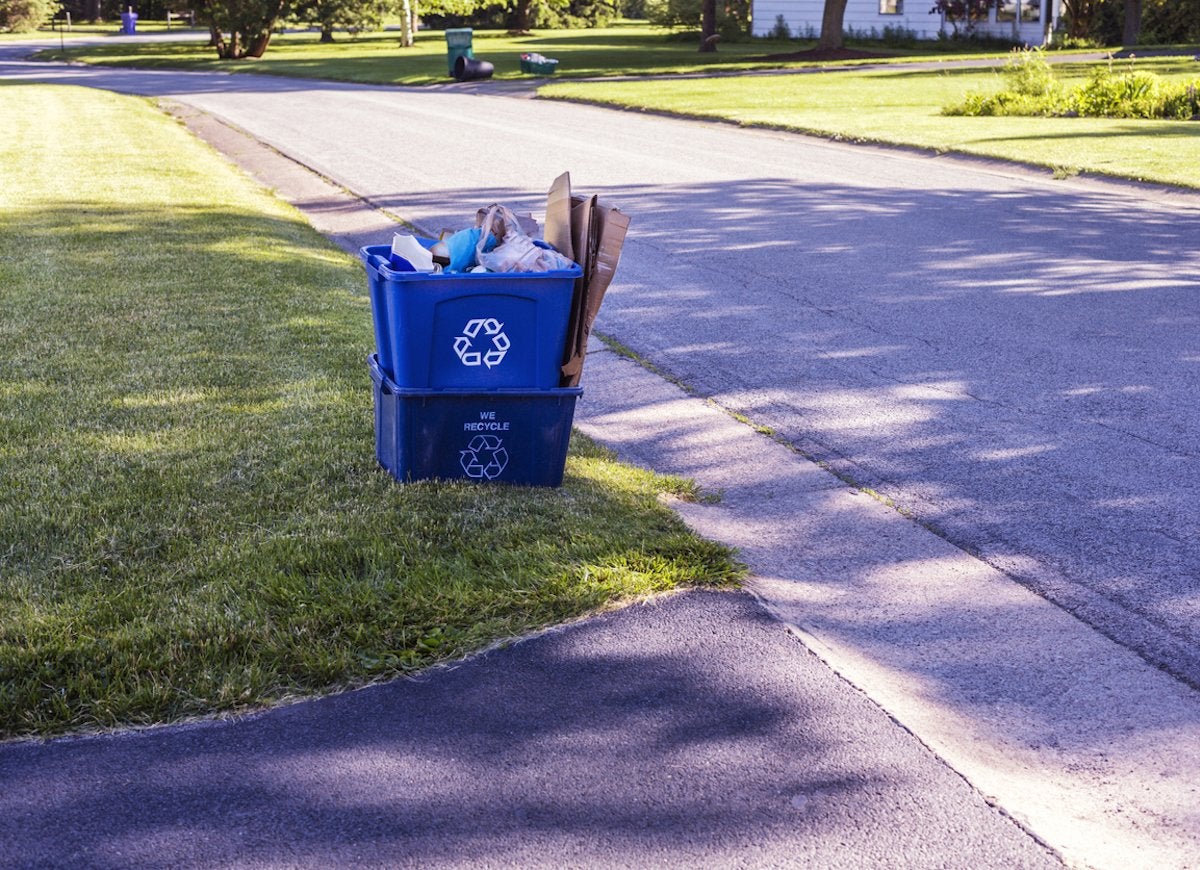
Did you recently buy a new flat-screen TV or fancy computer? If you just drop the empty cartons by the curb, thieves will know that you have expensive electronics for the taking. Instead, break down the cardboard boxes and bag them up until trash or recycling pickup, or cart them off to the dump so your pricier purchases remain a secret to passersby.
Close the Garage Door
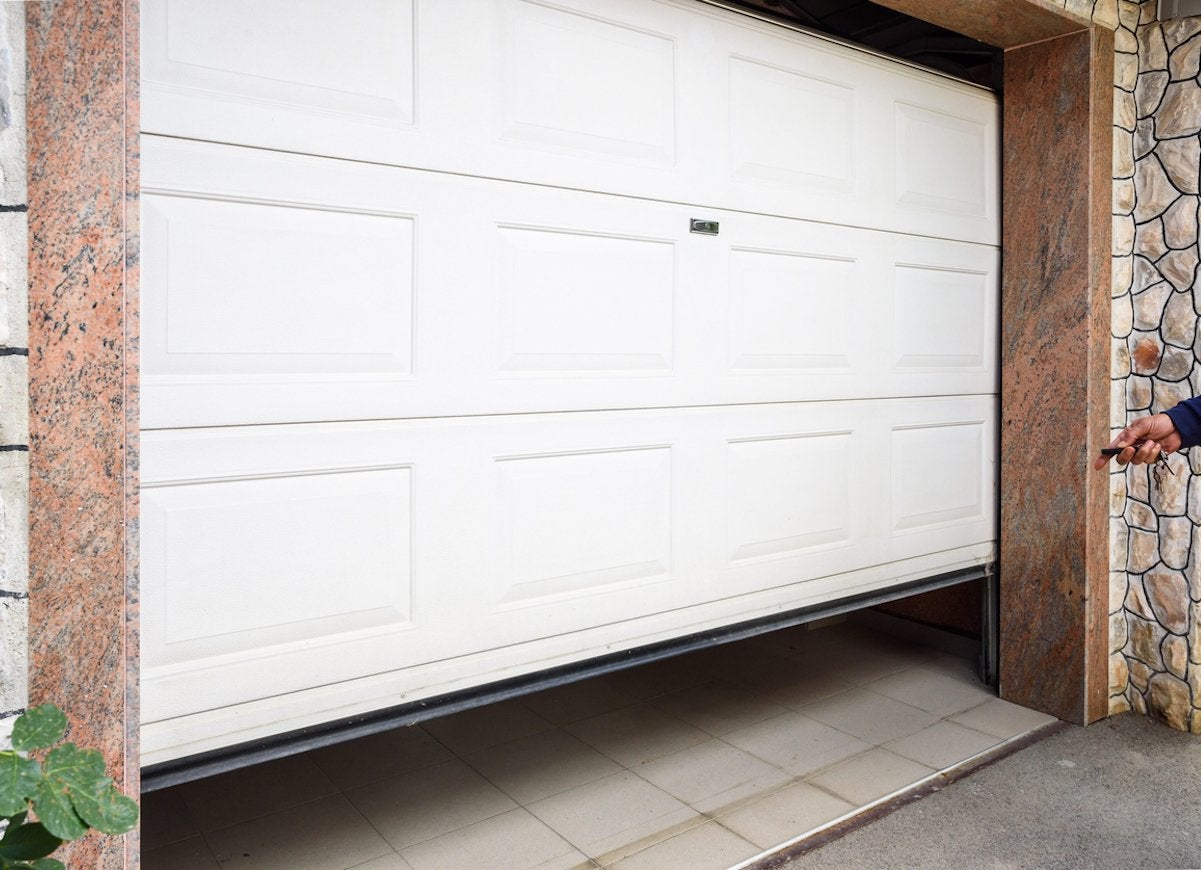
An open garage door is more than just an open invitation to thieves who may want your bicycles, tools, and lawn-care equipment. If you have an attached garage, that open door can also grant them access to your house. Make it a point to close the garage door each time you enter or exit the house. If you frequently forget to do this, consider getting an automatic garage door opener, or opt for a smart garage door that can be controlled from your smartphone and can even remind you when the door is open.
Don’t Let Things Lie
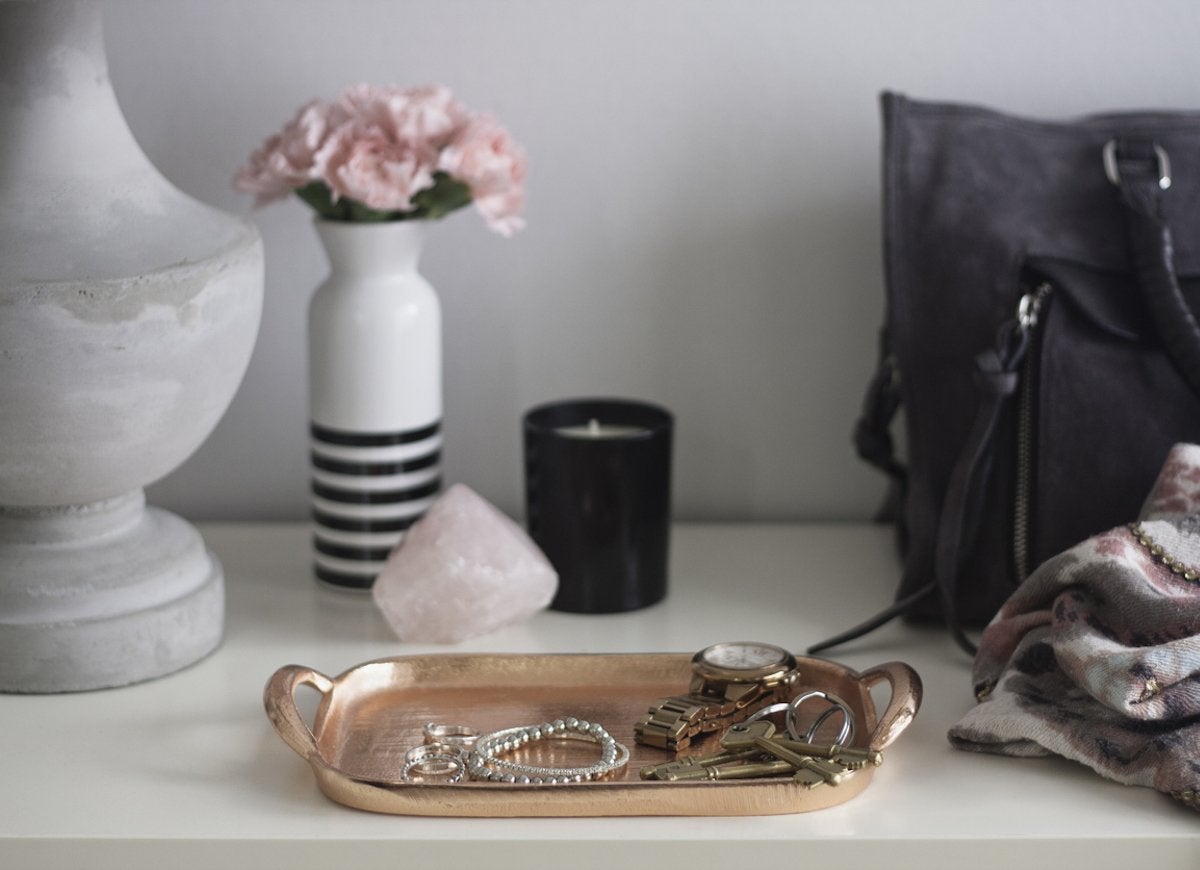
According to statistics from the Burglary Prevention Council, 34 percent of burglars gain entry through the front door, and if that front door is standing ajar, with keys, phones, and other valuables in plain view, you’re only giving them more reasons to head inside and grab the goodies. Whether you’re checking the mail or carrying in the groceries, keep small valuables in your hand or on your person while the front door is open, even if the storm door is closed.
Related:
Leaving These 13 Things by the Front Door Could Keep You Safe
Install Security Cameras
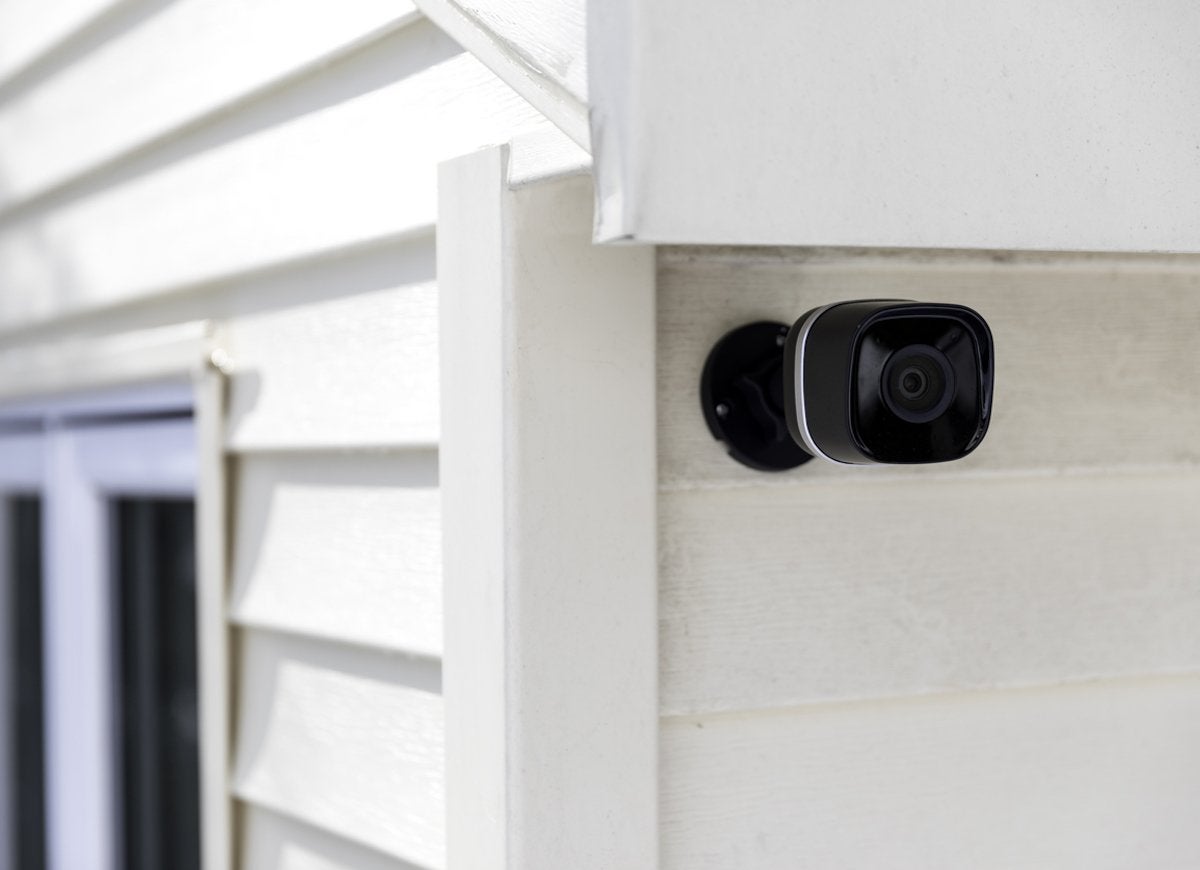
Thieves will stop at nothing to nab your valuables—except, perhaps, a security camera that’s staring them in the face. Install outdoor security cameras near entry points to your house. If prowlers approach, you’ll be able to watch them in real time on your connected monitor, or even review the recorded footage and send it to local law enforcement, if needed.
RELATED:
The Best Outdoor Security Cameras for Surveillance and Safety, Tested
Update Doors and Locks
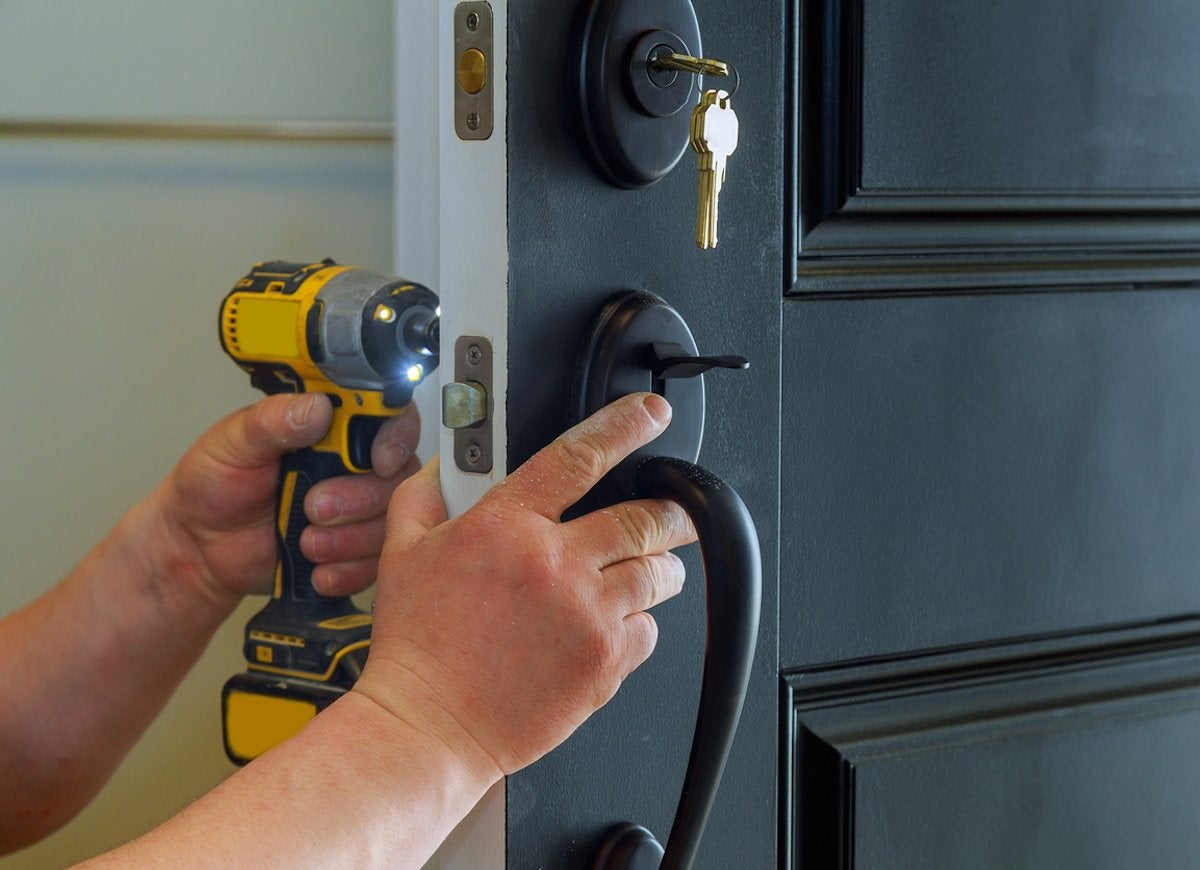
Believe it or not, one of the most common ways burglars break into a home is to kick open the door. Make it harder for burglars by replacing hollow-core exterior doors with solid wood or metal doors and installing a deadbolt with a bolt length (also known as a throw) of at least one inch.
RELATED:
Tested: The Best Door Locks For Your Home, Garage, or Rental
Use Interior Hinges
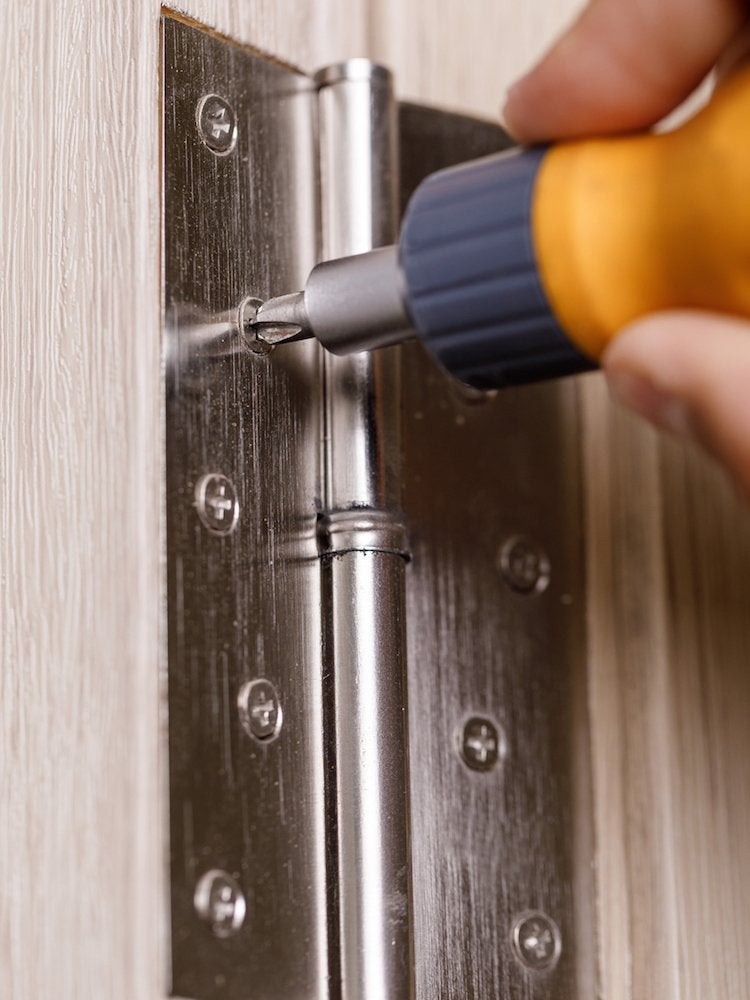
If your door hinges are on the exterior, picklocks could in theory remove the hinge pins and gain entrance to your home. For peace of mind, have your door rehung so the hinges are positioned inside the house where thieves can’t tinker with them.
Use Multiple Locks
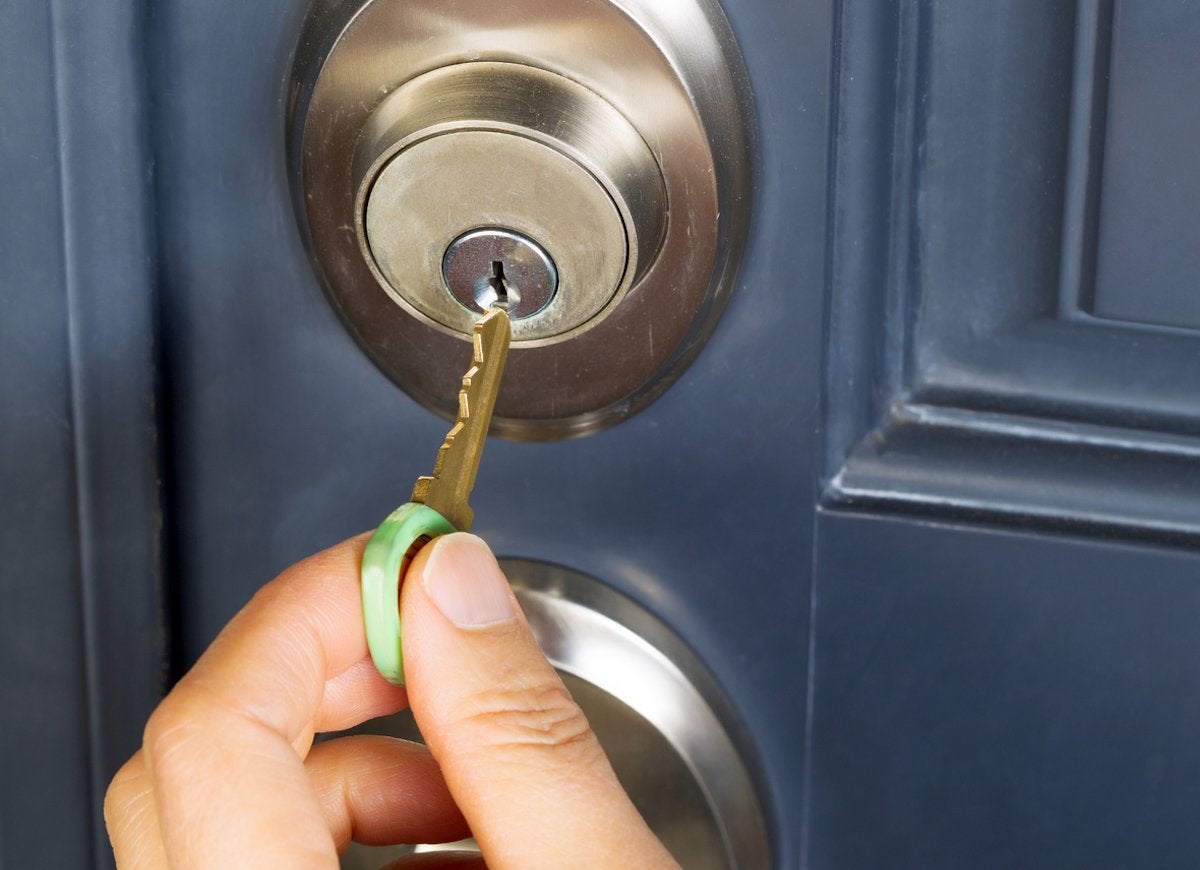
Make it harder for savvy burglars to intrude by installing multiple locks on your entry doors. You should have a minimum of two door locks at main entryways, but this could mean either two locks on a single door or a single lock on one door coupled with a locking storm door.
Take Advantage of Smart Products
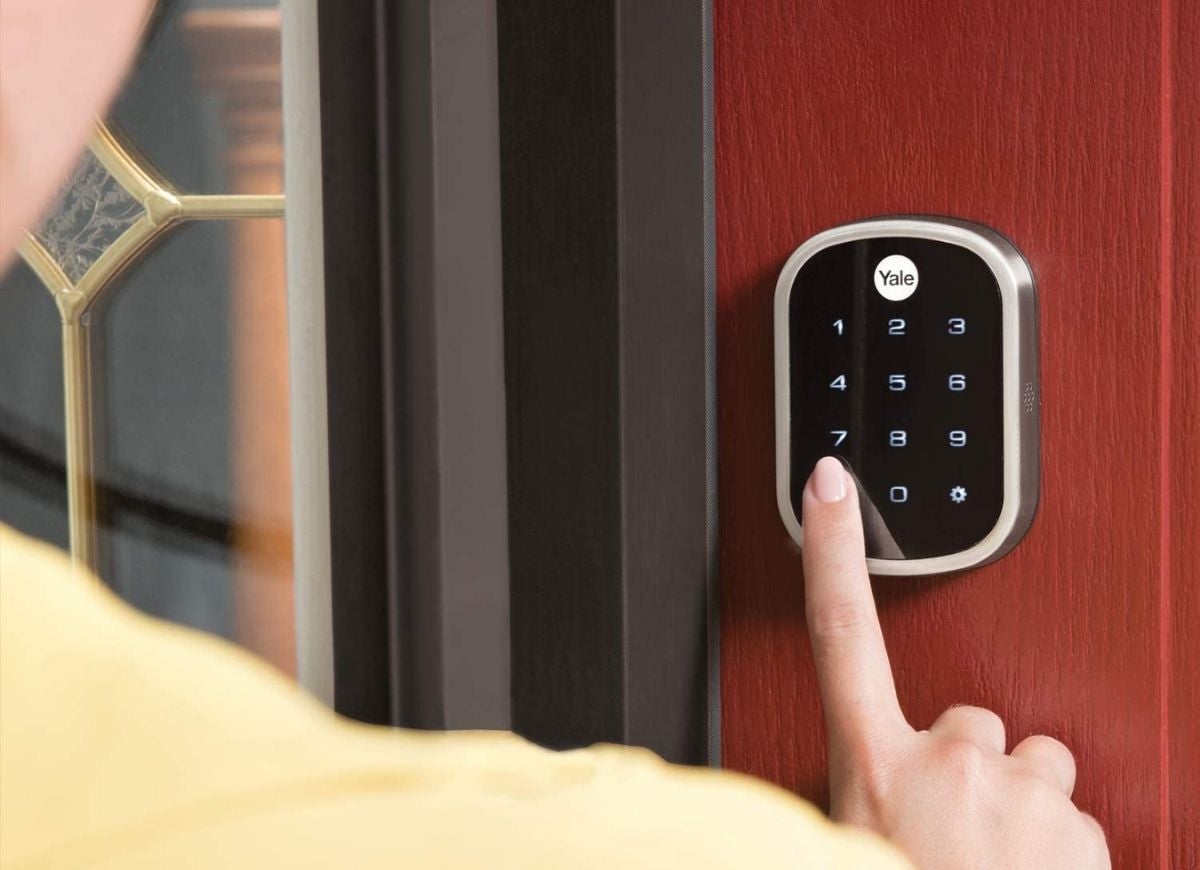
Home automation can be expensive and comes with the risk of hacking, but it’s still a good idea to install a few affordable, security-enhancing smart-home features. For example, you can install smart light bulbs in porch lights and set them to automatically light up at certain times of night. You may also want to install smart door locks that let you remotely open and close the door and grant access to a guest or a housekeeper.
RELATED:
The Best Smart Home Systems
Put in Window Air Conditioners
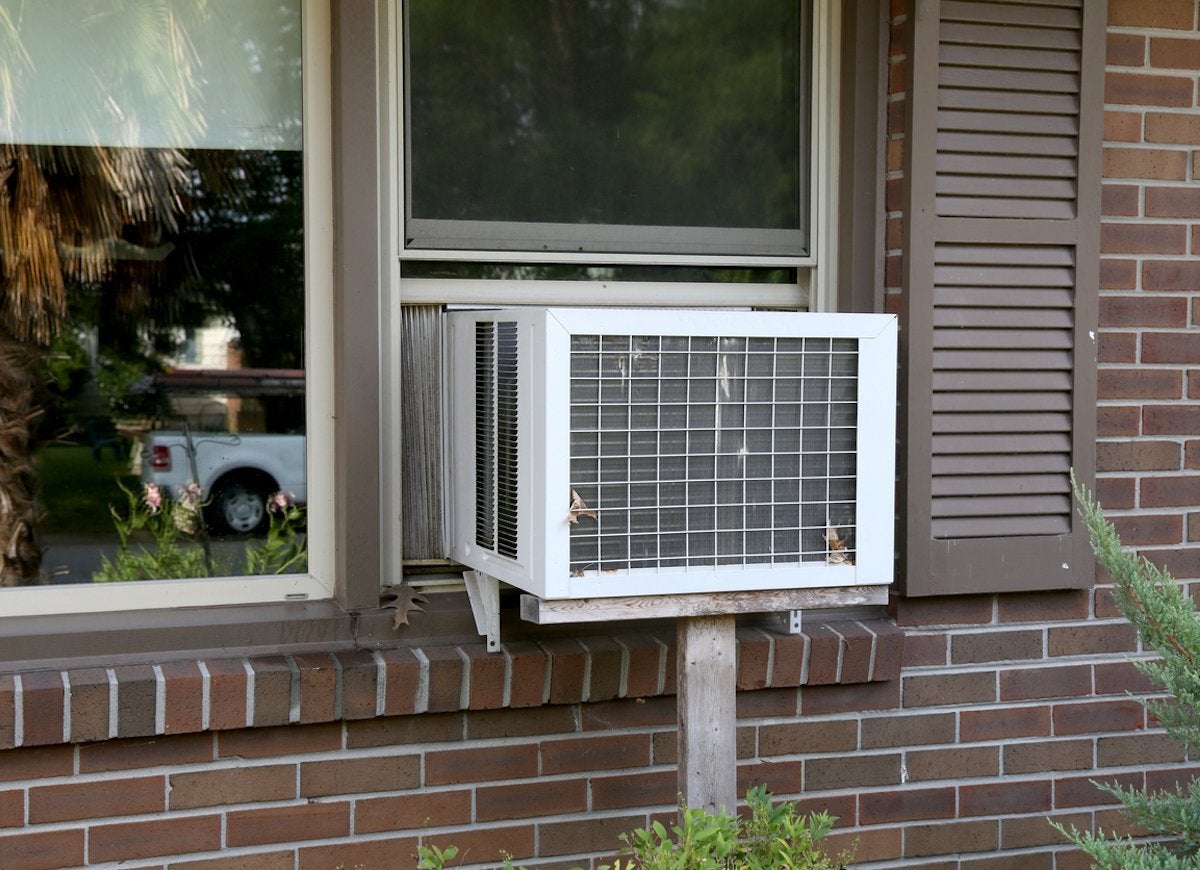
Give intruders the cold shoulder while you maintain comfortably cool indoor temperatures by installing window air-conditioning units in the front or back of your house. The AC units will help block entry into the home through first-floor windows, a popular intruder entry point that accounts for 23 percent of home burglaries, according to the Burglary Prevention Council.
RELATED:
The Best Air Conditioners, Tested
Protect the Windows
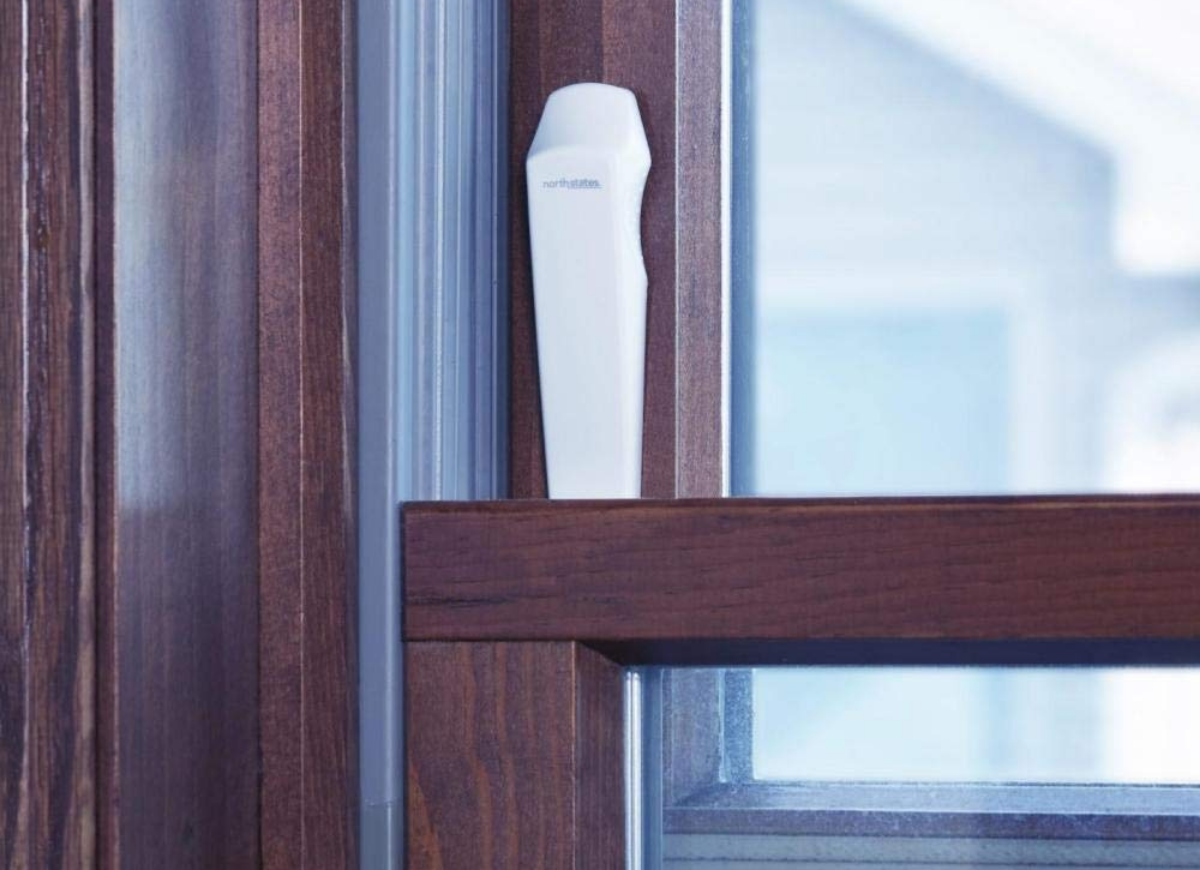
Prevent burglars from coming in through the windows by installing window stops on your double-hung windows. These mechanisms prevent intruders from sliding your window open to gain entrance, and they also let you keep the window slightly up for ventilation without fear of break-ins.
Install a Security System
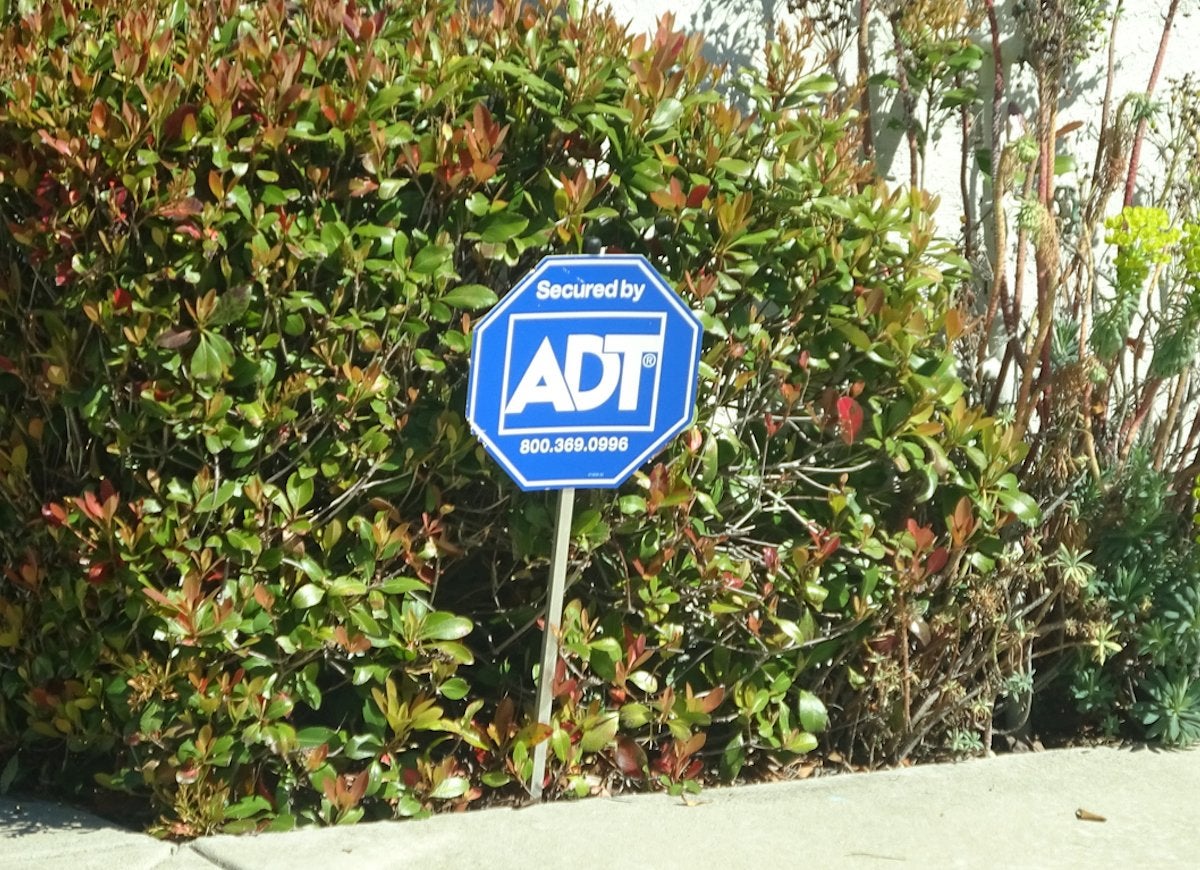
A home without a security system is three times more likely to be broken into than a home with one, according to the National Council for Home Safety and Security. So, installing a home security system—and displaying the associated home security sign—is an effective deterrent. If a burglar does break in, the alarm may scare him off, the security company will typically call you to make sure you’re safe, and the police can be dispatched if necessary.
Keep Security Signs Generic
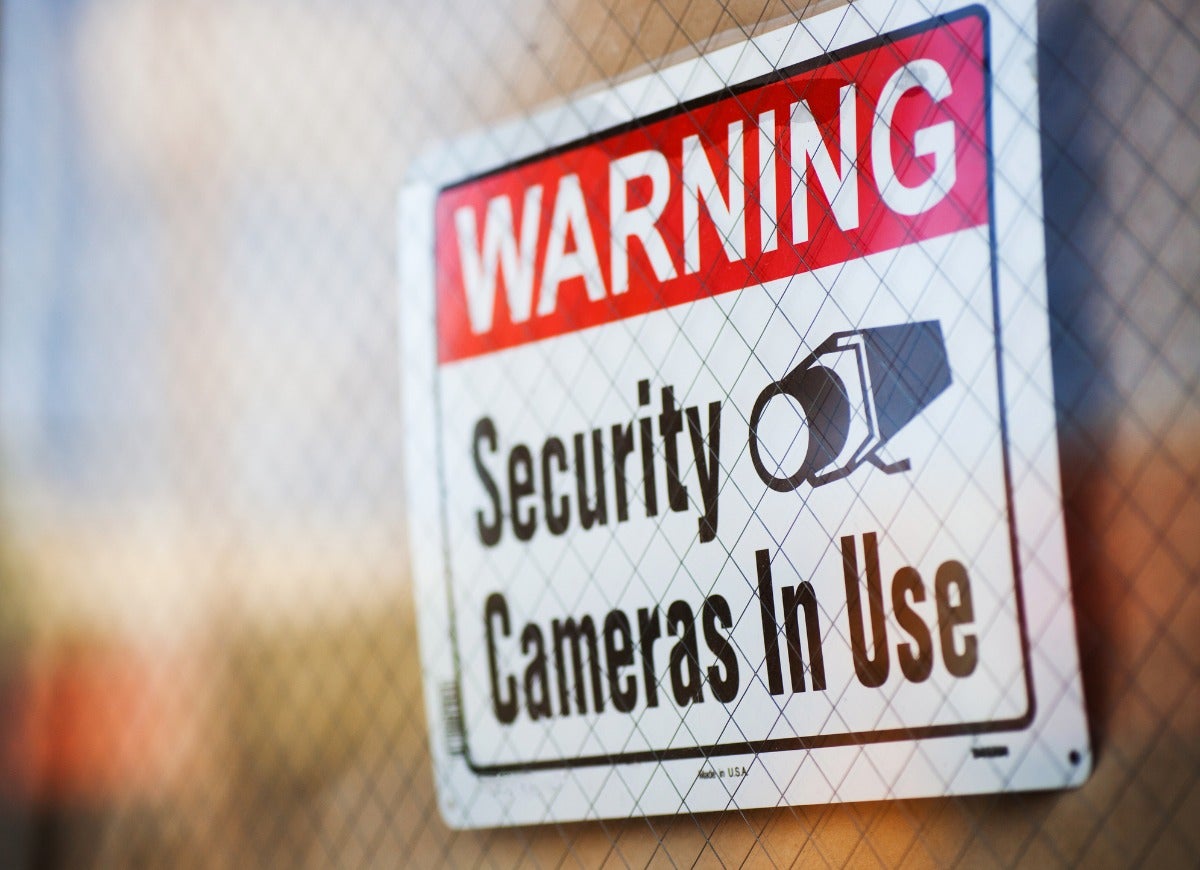
Even fake security system signs and stickers will make the average intruder think twice about trespassing, but canny cat burglars may try to look up the names and service regions of the companies listed on those decoy displays. If you have a fake “Protected by ADT” or other brand-name sign or sticker, replace it with a generic equivalent to keep burglars guessing about who’s protecting your property.
Keep the Wires Covered
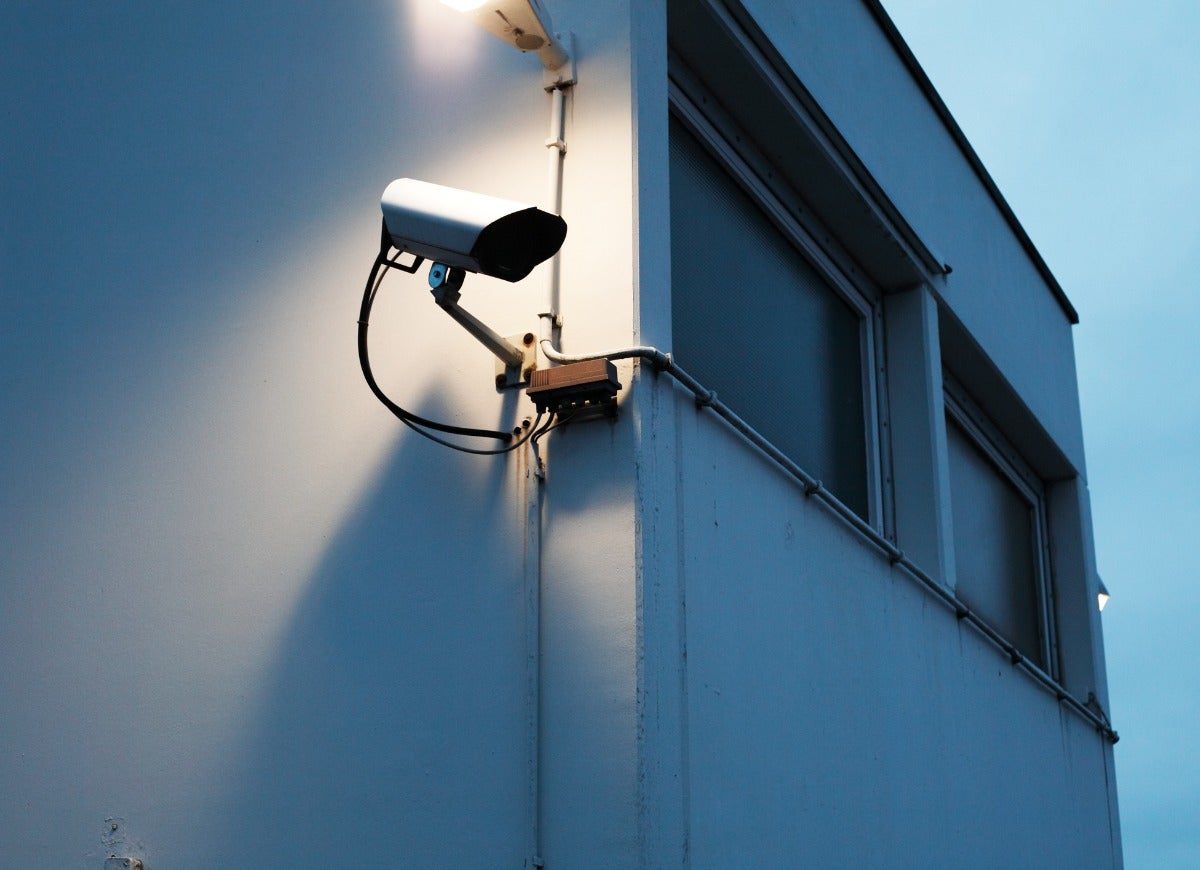
If a burglar is undeterred by the security sign on your lawn, he may attempt to disable your home security system by cutting the wires. Concealing exterior wires in electrical conduits can make it harder for prowlers to find and snip them.
Keep Car Keys at Your Fingertips
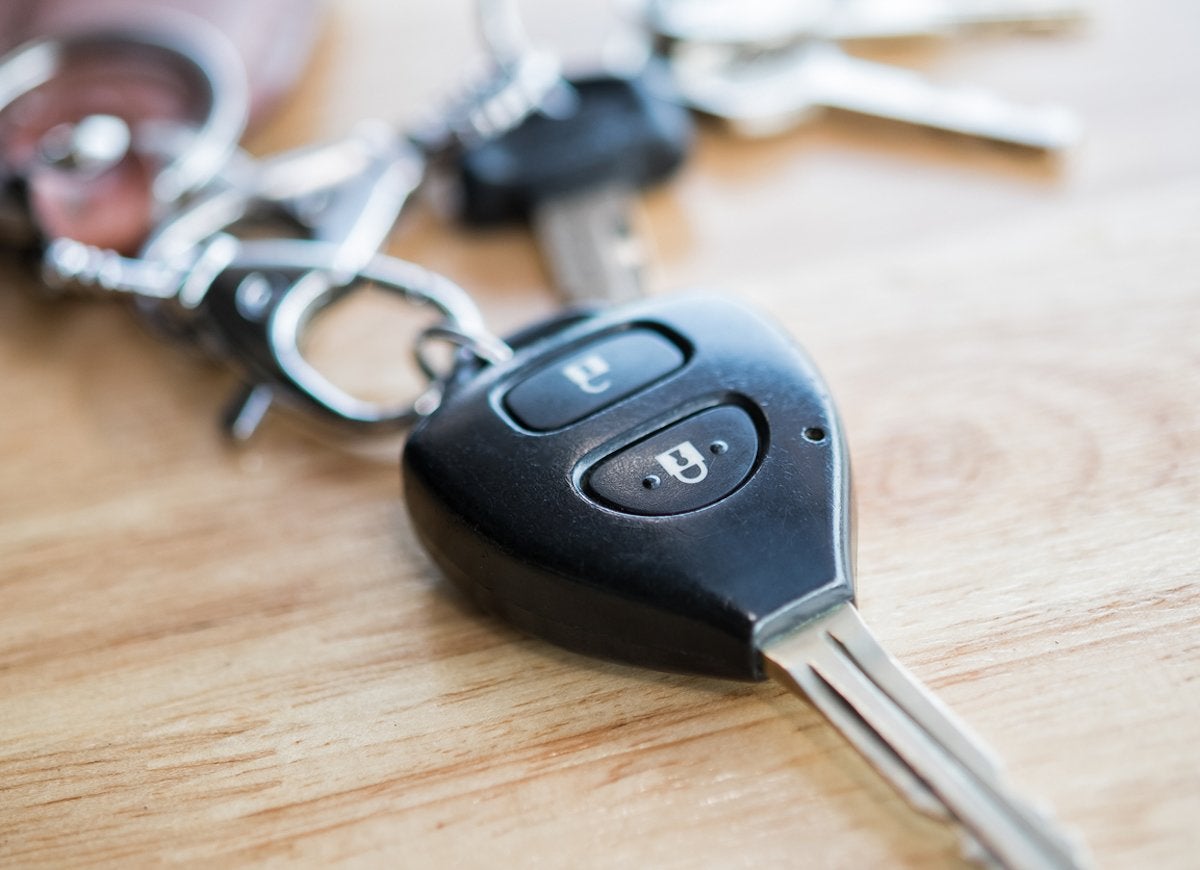
Are you still parking your car keys on a wall-mounted key holder in the foyer? You may want to relocate those keys to your bedroom, preferably within arm’s reach of your bed. This way, if you hear someone in your garage, you can quickly hit the panic button on the key fob to sound the car alarm and scare off the intruder.
Get a Fake Dog

Want the security benefits of a guard dog without the barking, walking, training, and cleanup? Display a “Beware of Dog” sign or dog food bowls near your front or back door or along the front fence to signal to passersby that Fido is home and ready to fend off crooks.
RELATED:
11 Ways You May Be Inviting Burglars Into Your Home
Check the Mail

Nothing tells trespassers “I’m not home” like a mountain of uncollected mail in your mailbox. If you’re going on vacation or an extended business trip, have the post office hold your mail or have a trustworthy neighbor collect it while you’re away to ward off both mail poachers and burglars.
Maintain the Lawn
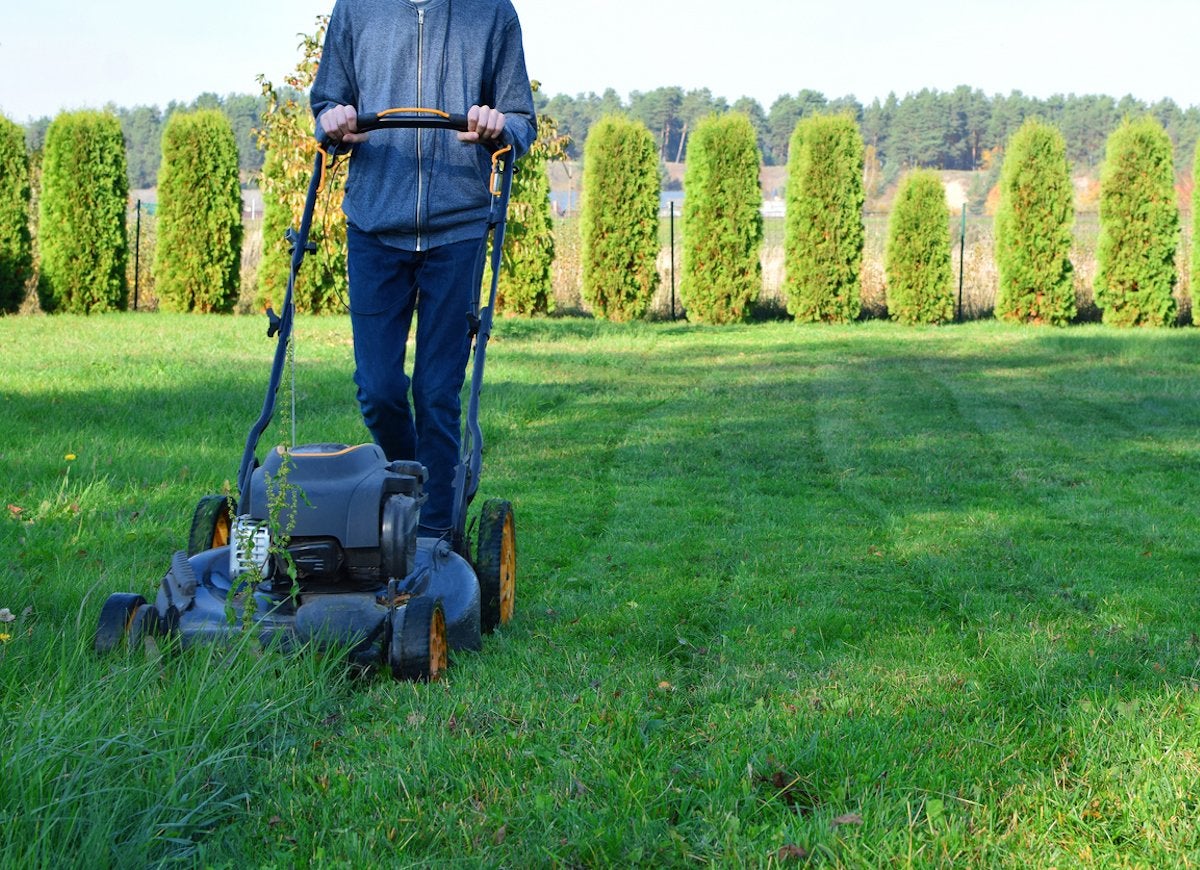
An overgrown lawn and shaggy shrubs are the landscaping equivalents of uncollected mail. They signal to burglars that your home is unoccupied, and they also provide them with a place to hide out on your property. Before you go away, mow your lawn and trim tree branches and shrubs, or hire a professional to do so, to give the impression that you’re home.
Safely Store Your Spare
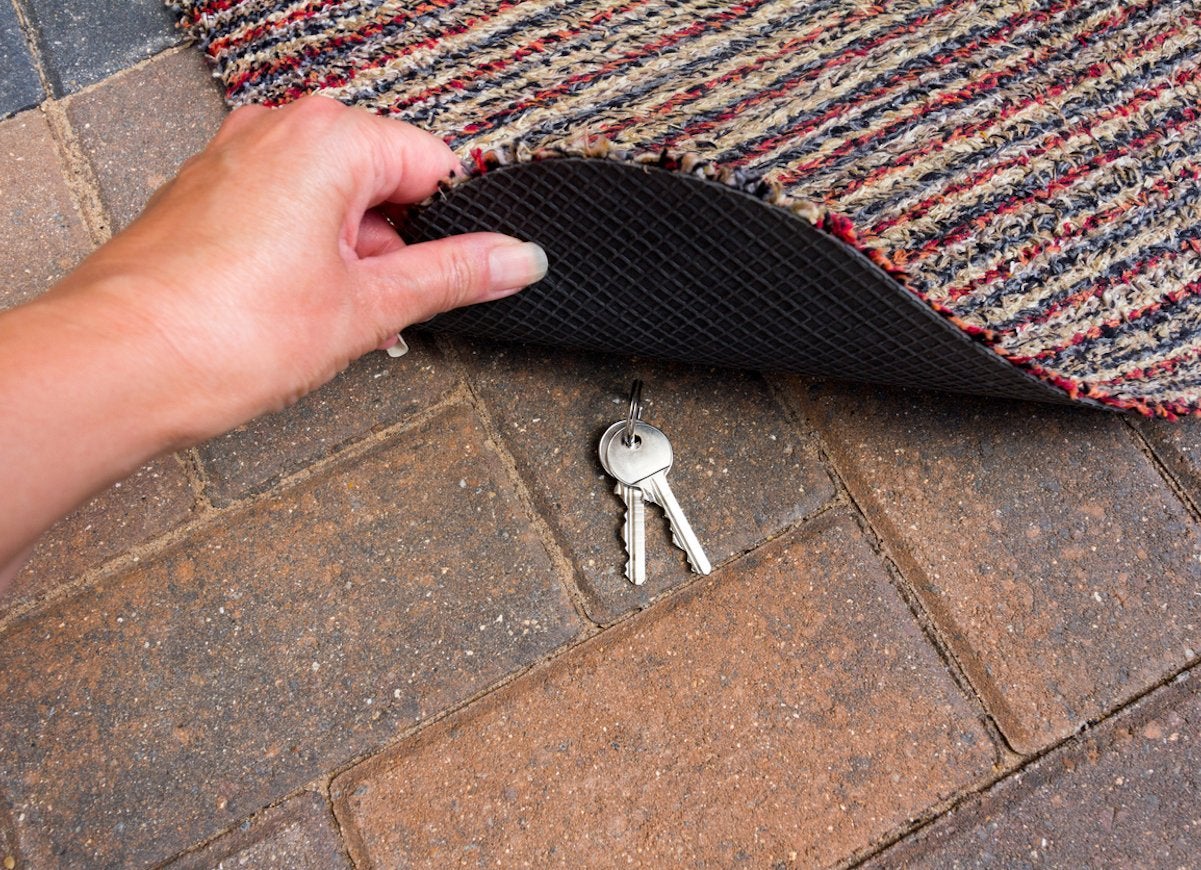
If you’ve been living under a rock, you may still think it’s safe to stow the spare key to your house under a convenient rock, beneath a flowerpot on the front porch, or inside the mailbox. But thieves have long since caught on to these not-so-hidden hiding spots, so you’re better off leaving your key with a neighbor or stashing it in an outdoor lockbox for safekeeping.
RELATED:
The Most Cunning Secret Hiding Spots We’ve Ever Seen
Don't Advertise Your Name
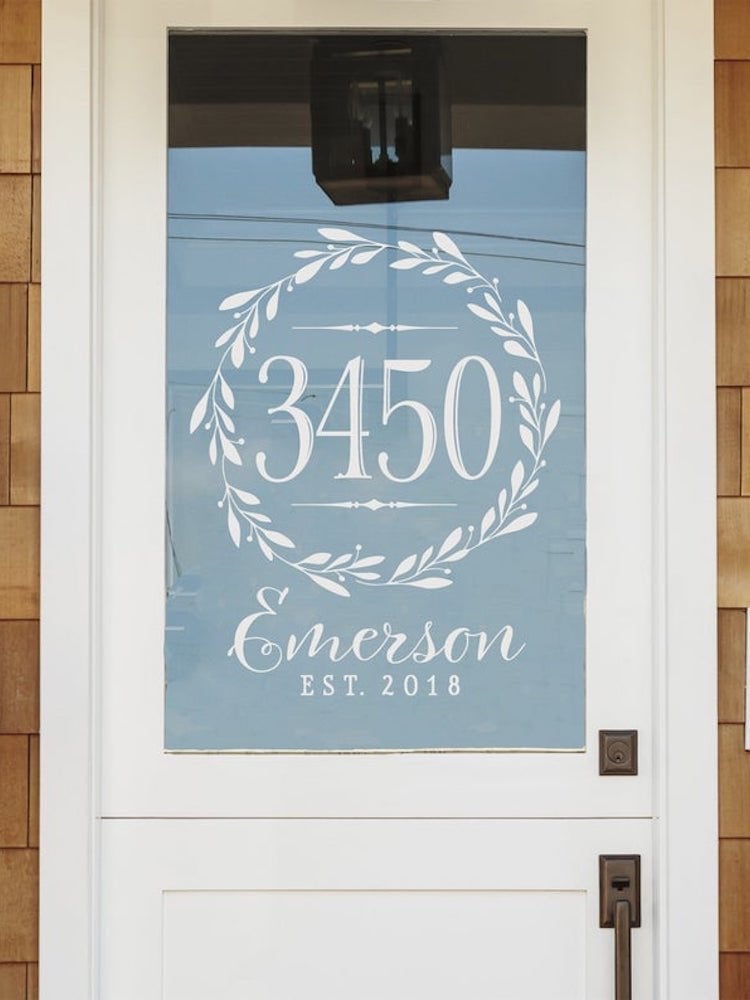
etsy.com via OldBarnRescueCompany
While putting your name on your house or mailbox may feel like a folksy or stylish touch, burglars can use your name to look up your phone number and call the house to see if you’re home. If they have your name, they can also convince neighbors that they know you, solicit information about you, or even gain entry into your home if your neighbor has your spare key. It’s safer to keep your name, and the names of others in your household, off your mailbox.
Don't Overshare

Sharing your vacation plans on social media announces to everyone in your network of hundreds of virtual acquaintances that your home is unoccupied—a major security mistake. So, keep mum about that upcoming trip to Maui until you’ve returned home, then post away!
RELATED:
13 Mistakes You Make Every Time You Leave for Vacation
Take Out the Trash
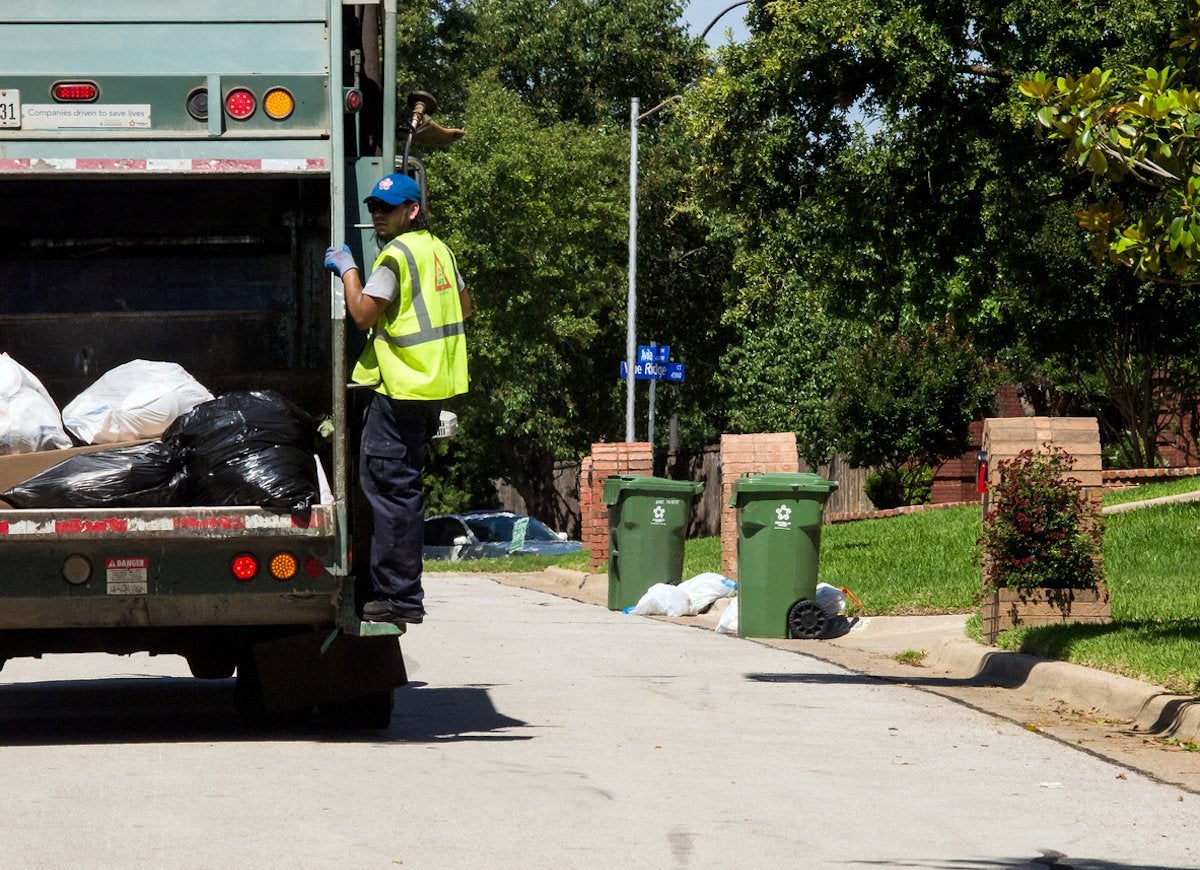
On trash pickup day, prowlers often keep their eyes peeled for homes that the garbage truck skips—a telltale sign that the owners weren’t around to put out the trash. To give would-be intruders the impression that you’re home, politely ask a neighbor to put out your trash cans (and bring them back in) while you’re away.
RELATED:
8 Ways to Make It Look Like You’re Home When You’re Not
Don't Leave Tools Out
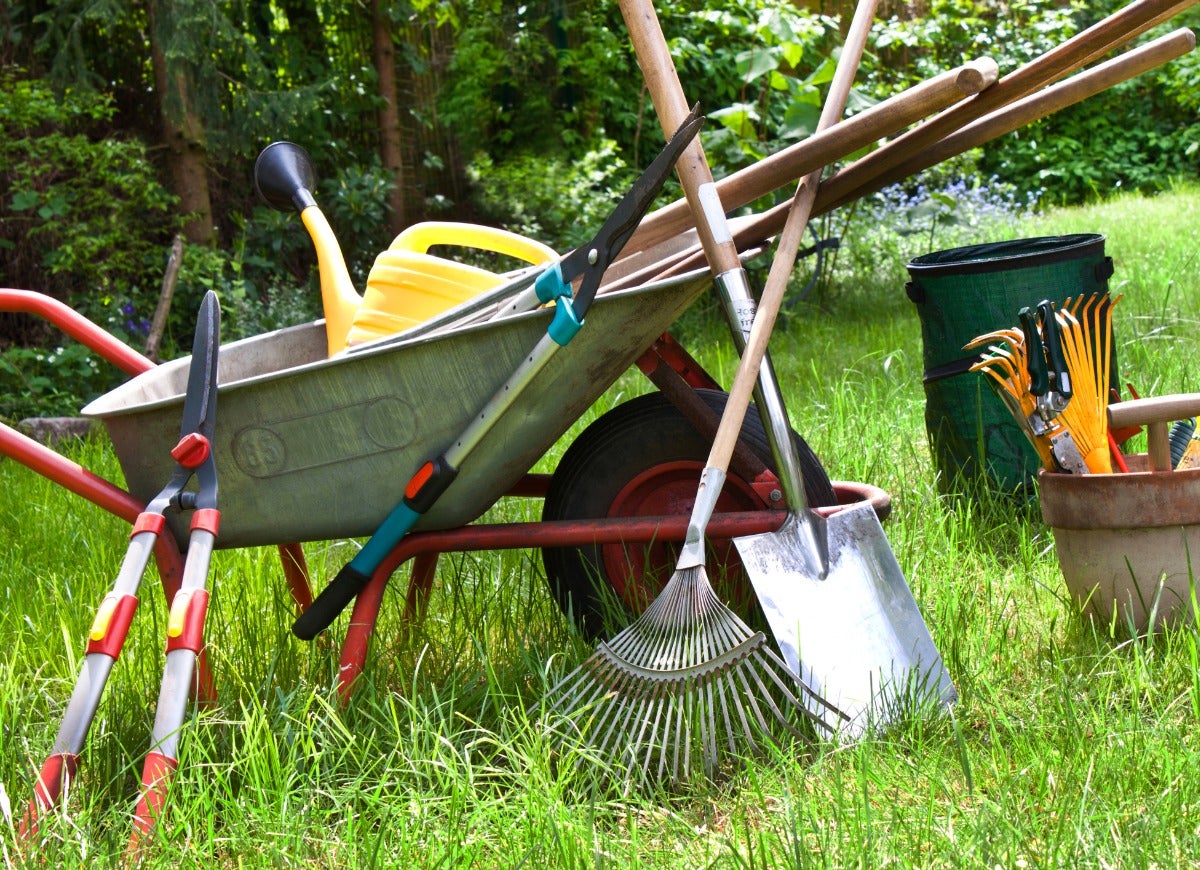
The same tools you use for gardening and DIY projects can also be used to break into your house or, if they wind up in the hands of an intruder, to injure someone. Be sure to keep hammers, axes, pry bars, and ladders locked in the garage or in a shed where criminals can’t access them.
Use the Peephole
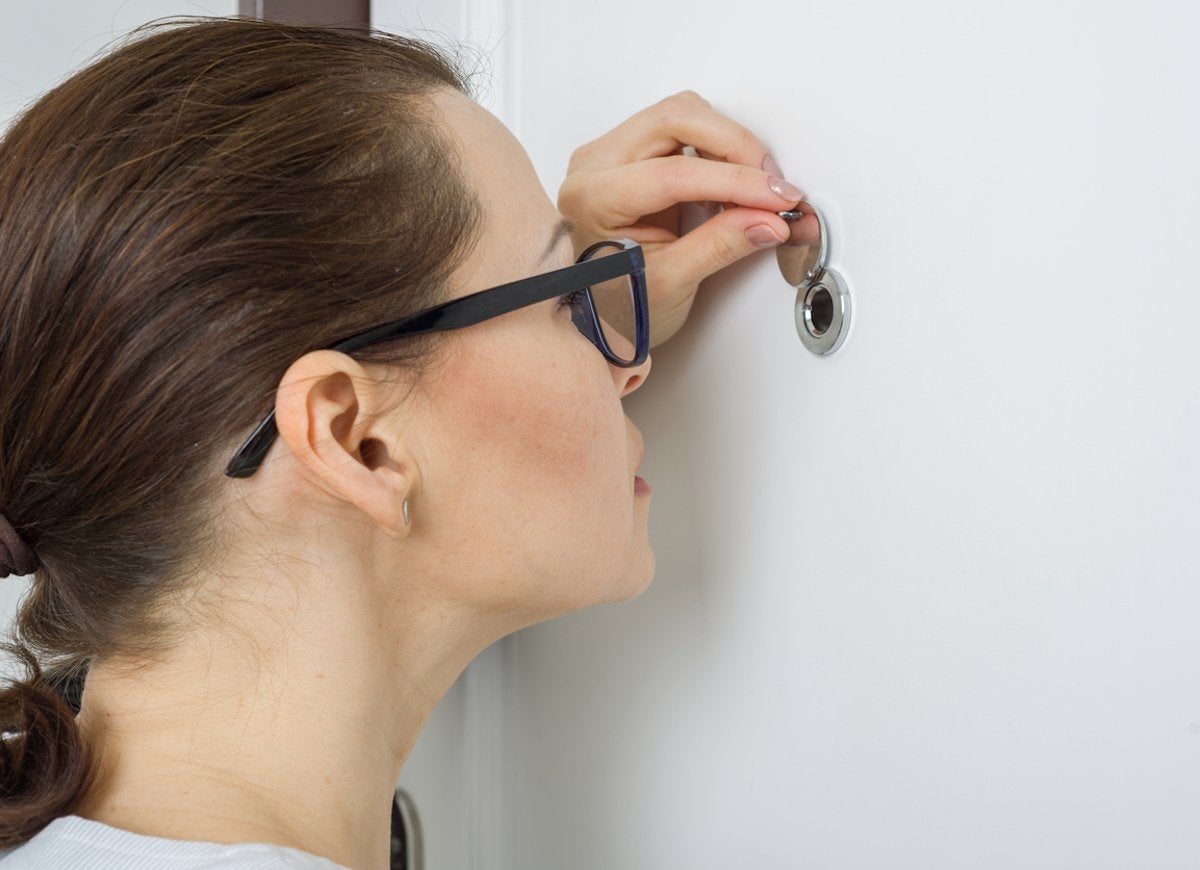
Some brazen burglars will knock on your front door to see if anyone is home, and if you open it, will try to invite themselves in by offering you a product or a compelling story. Installing a peephole at eye level on your front door—or installing a doorbell camera—is a simple and inexpensive way to avoid suspicious characters.
Close Curtains or Blinds
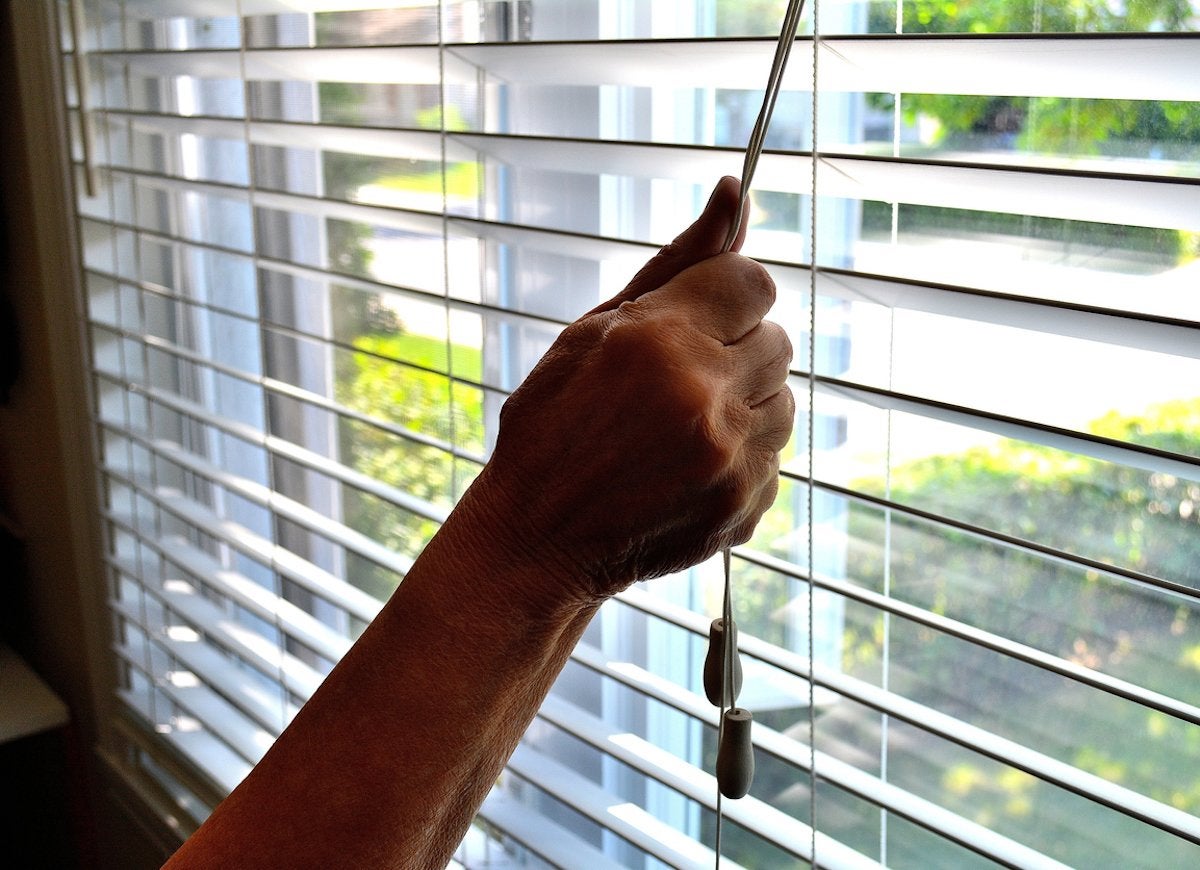
If you regularly leave your curtains and blinds open, burglars are free to window-shop and pick out possessions they would like to pilfer. To keep your belongings safe and temptation at bay, draw and close blinds when you’re away.
RELATED:
Blinds vs. Curtains: Which Are Right for Your Home?
Park in Plain View
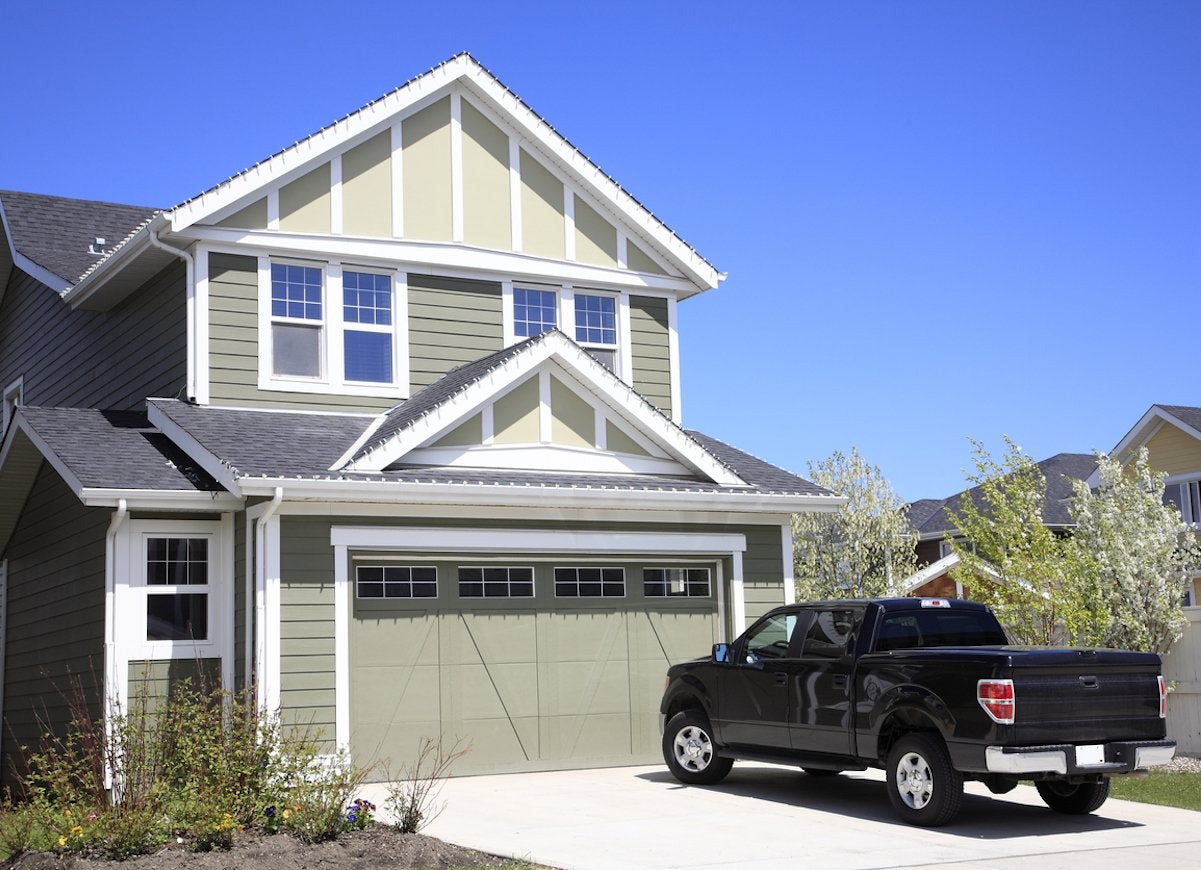
Crooks will think twice before invading a home with a car parked in the driveway because it’s a sure sign that the owner is home. Even if you have space for your car in the garage, park it in the driveway if you’ll be away from home for more than one day, but be sure to remove the garage door opener and any other valuables before you lock the car.
Reinforce Sliding Doors
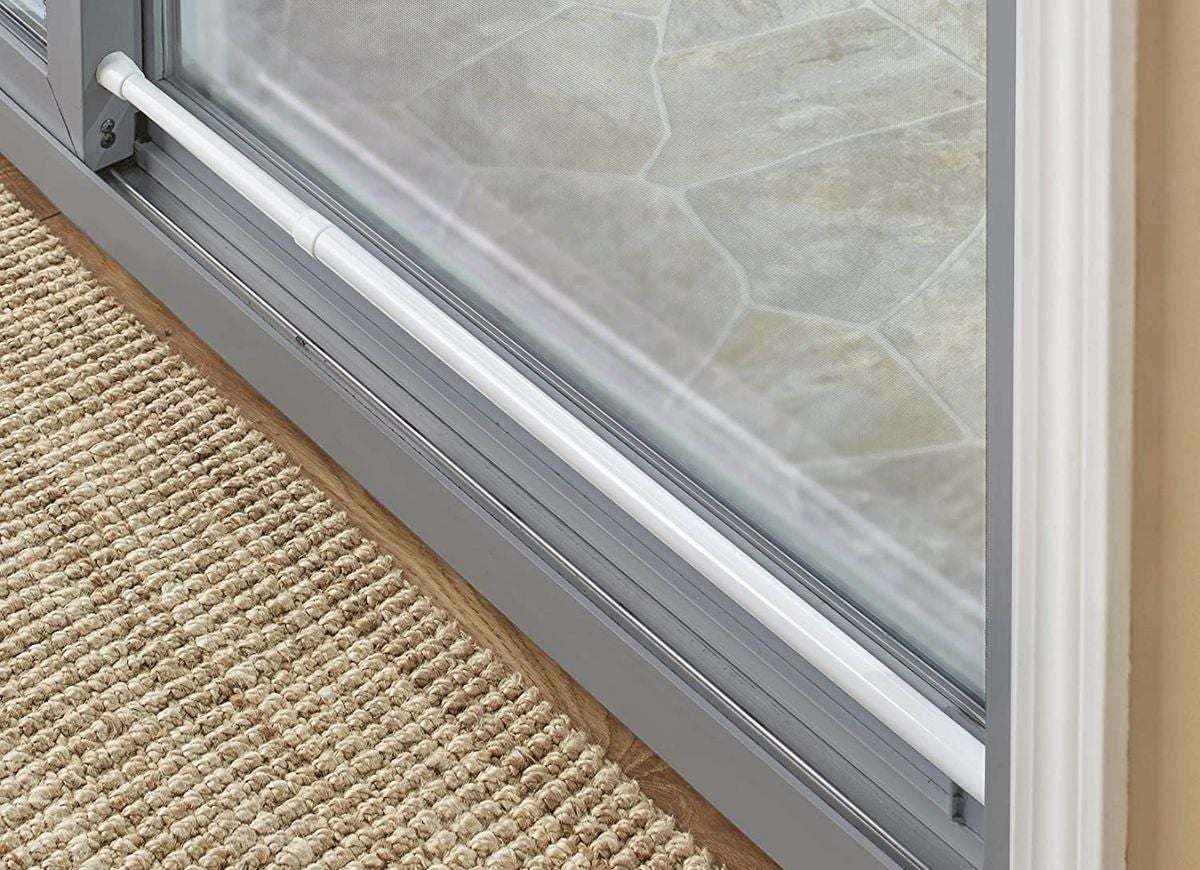
Sliding glass doors are a chink in your home’s armor. They’re often in the back of the house where thieves can break in without being seen, their locks tend to be weak, and the glass can be bashed in. Reinforce your sliding glass door by installing a security bar in the tracks or a pin lock through the frame. Also consider installing transparent safety film that makes it almost impossible for a burglar to smash the glass.
Hire with Caution
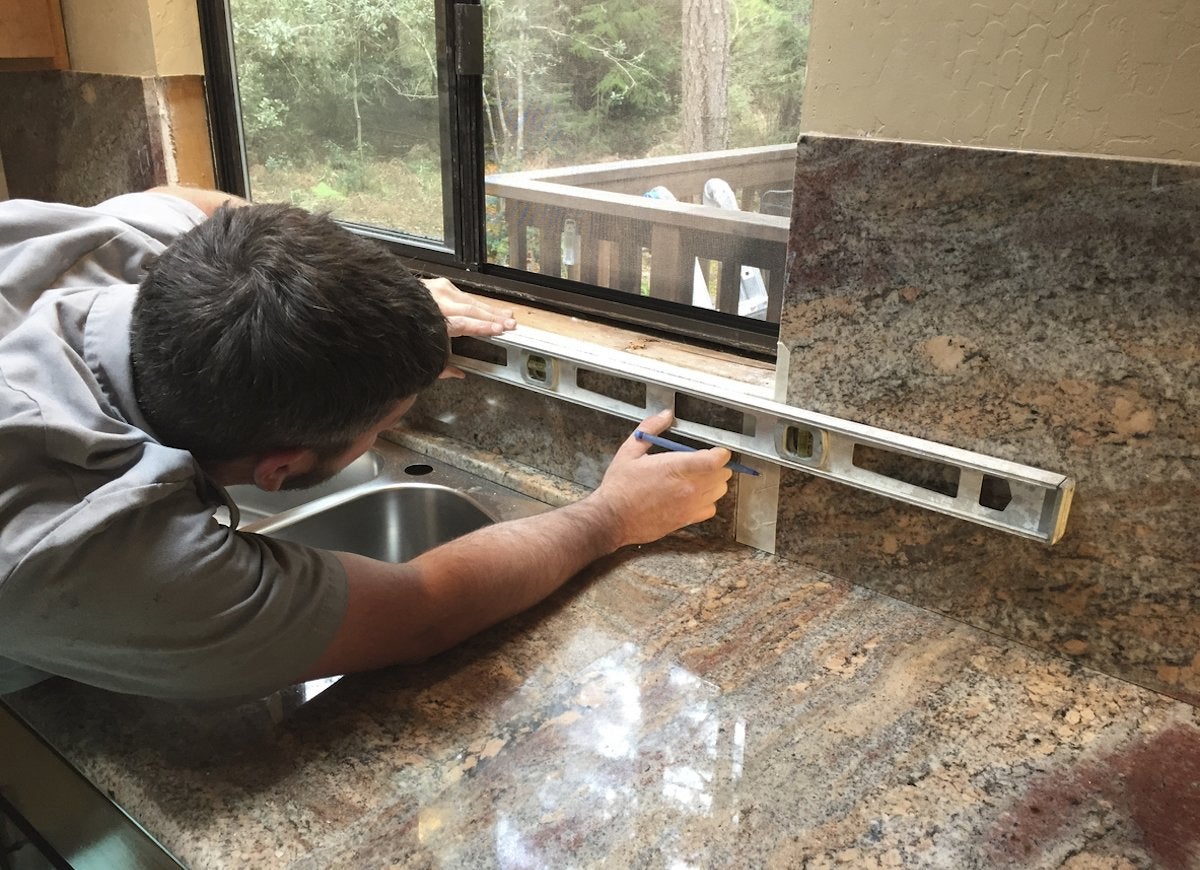
Busy homeowners let many people into their lives, and their houses. Housekeepers, contractors, and handymen pass through the front door all the time, and while most are trustworthy, it’s vital to do your due diligence before hiring professionals. Also be aware that burglars can easily play the role of one of these professionals, so when they show up at your door, don’t feel shy about asking for identification. You want to make sure that the person you’re letting into your home is the real deal.
Be Neighborly

Strike up a conversation or crack open a cold one with the Joneses every so often. It pays to get to know your next-door neighbors, not only to strengthen community ties, but also so you can keep an eye on each other’s house when either of you are away for long periods of time.
RELATED:
How To Start a Neighborhood Watch
Get a Safe
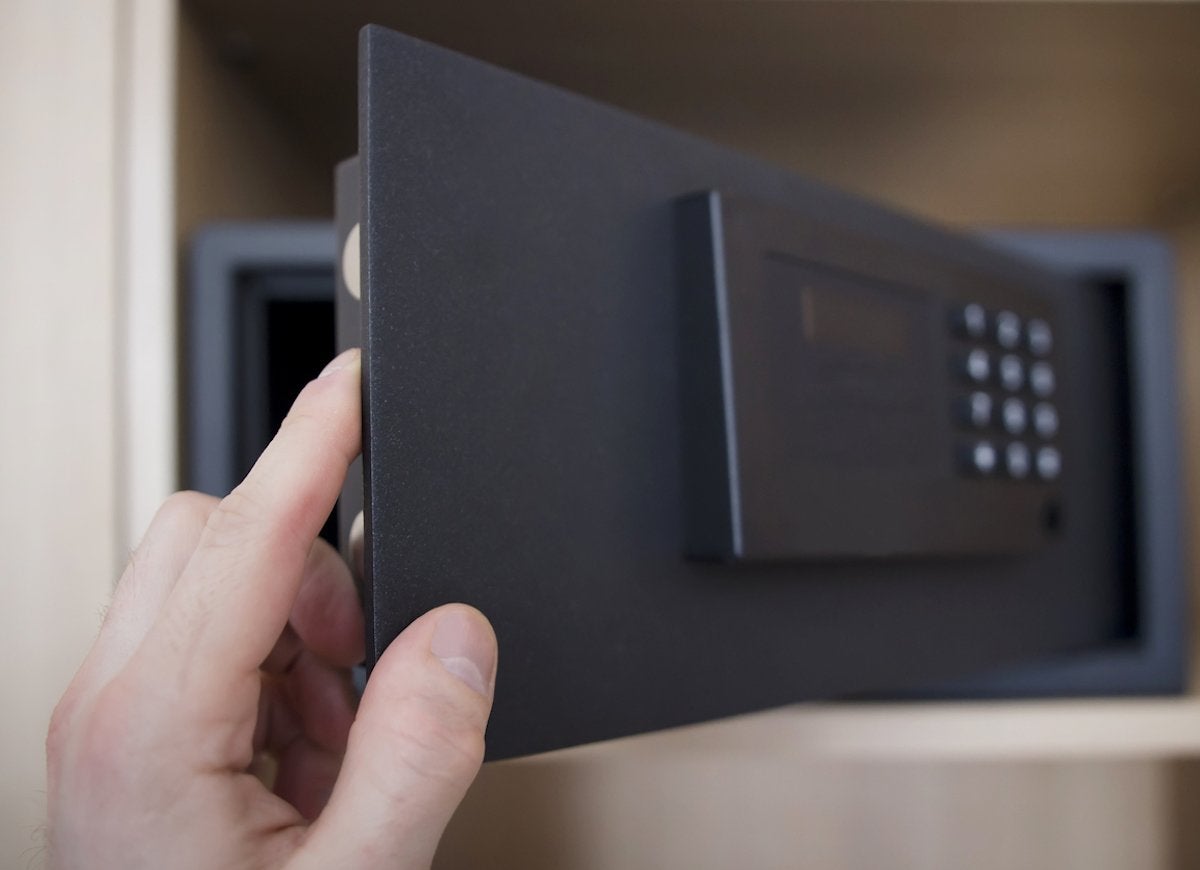
If worst comes to worst and you do have a break-in, you want your prized possessions to be out of reach. Stash small valuables such as jewelry, stock certificates, life insurance policies, and passports in a fireproof safe, then store the safe in a closet wall or under the bed, but never in the garage, where break-ins are common.
Name Your Possessions

An intruder will often sell some or all of the items he steals during a burglary for cash. If you etch your name onto valuables, a burglar who picks them up will be less likely to take them because they won’t be worth as much upon resale.
Shred It
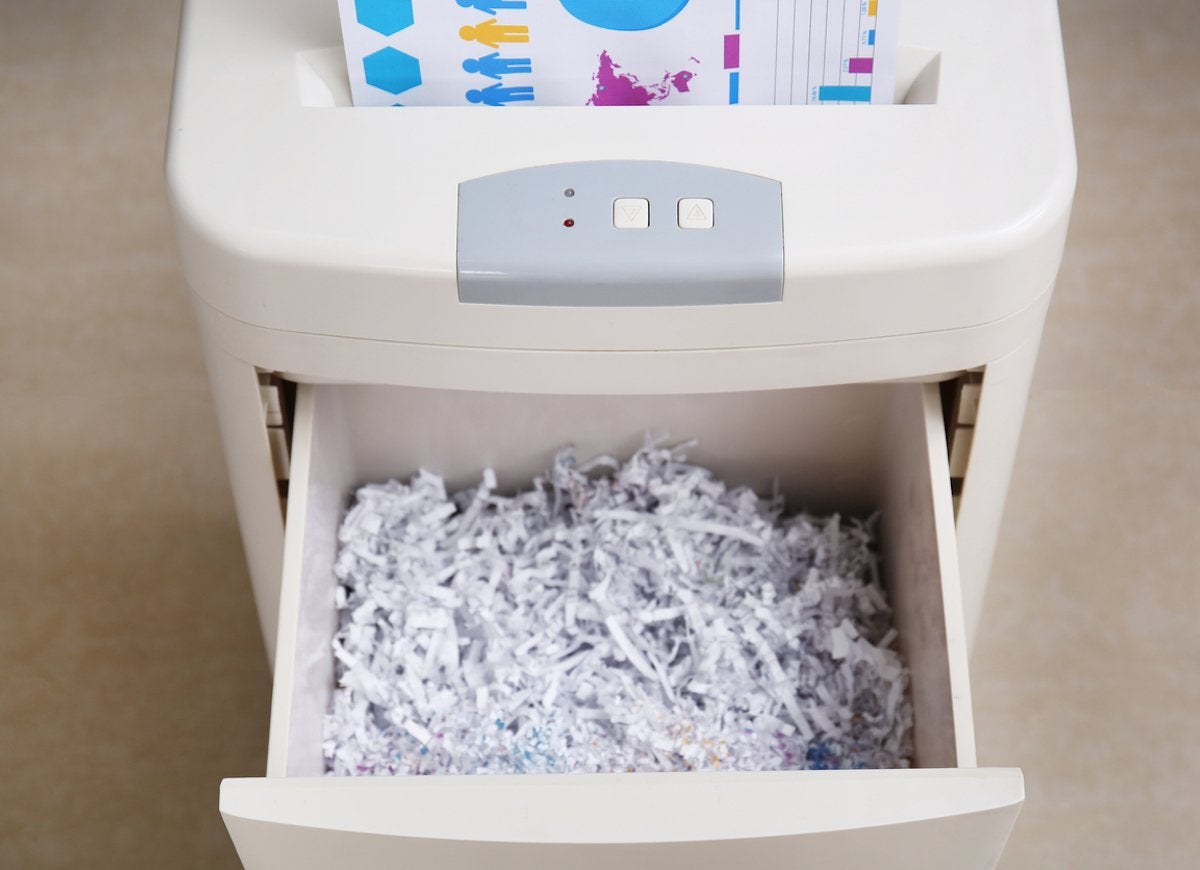
Identity theft is as legitimate a concern as property theft during a break-in. Sensitive documents like bank statements and credit card bills contain personal data that intruders can steal and use. Don’t keep these papers on hand; instead, shred them. If you must keep them, make sure they’re filed away and out of sight.
Make an Inventory
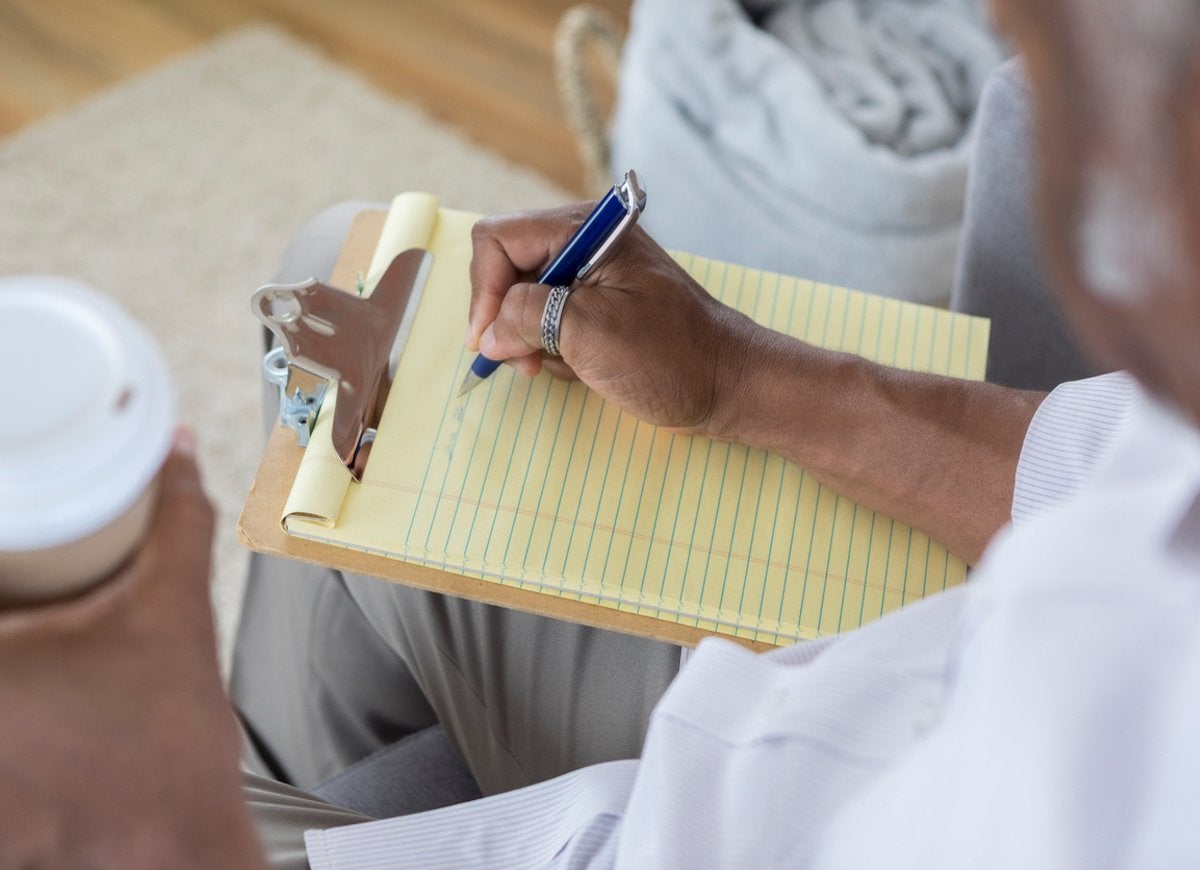
Periodically make a complete inventory of big-ticket items in your house, such as electronics, appliances, and furniture. In the event of a break-in, you can review the inventory and easily identify what, if anything, was taken so you can file an accurate claim with your insurance company
Get a TV Simulator
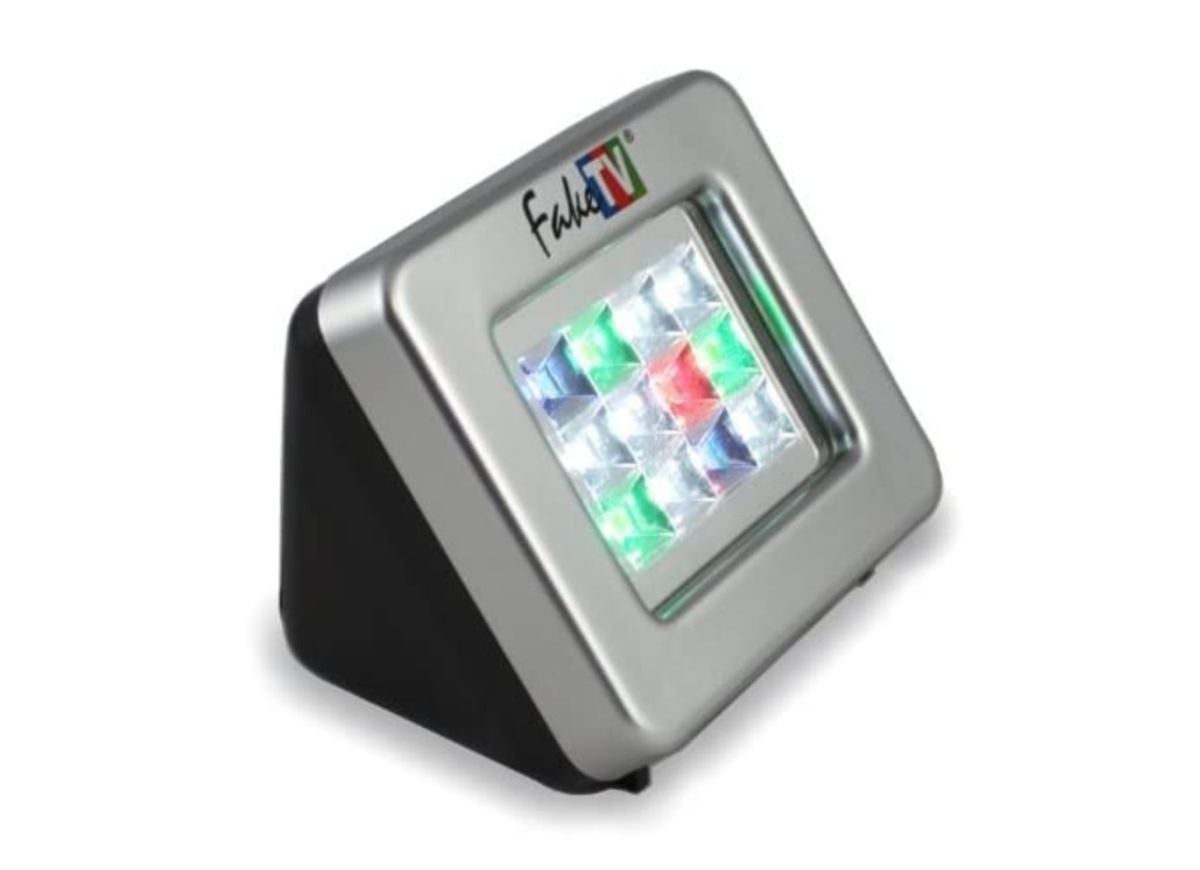
Trick would-be thieves into thinking you’re home by turning on a TV simulator before you leave the house. These devices produce high-intensity light, color changes, and on-screen motion to make it look like someone’s at home watching TV—and watching out for burglars.
RELATED:
10 Free and Low-Cost Ways to Improve Your Home Security
Show Off Your Street Number
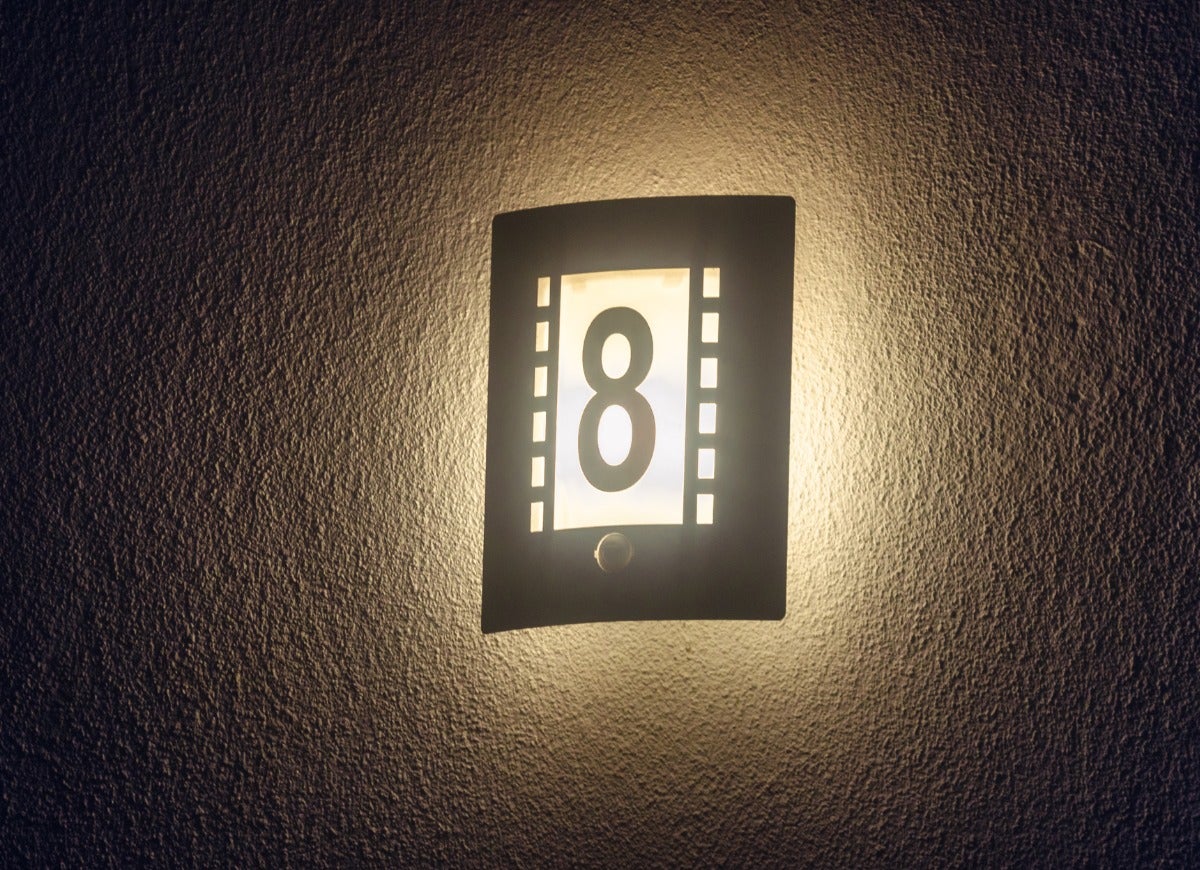
Hanging a large, reflective address plaque or house number on your property does more than boost curb appeal. In the wake of a break-in, these easy-to-read signs help law enforcement or EMS personnel spot your home and attend to an emergency.
Install a Driveway Alarm
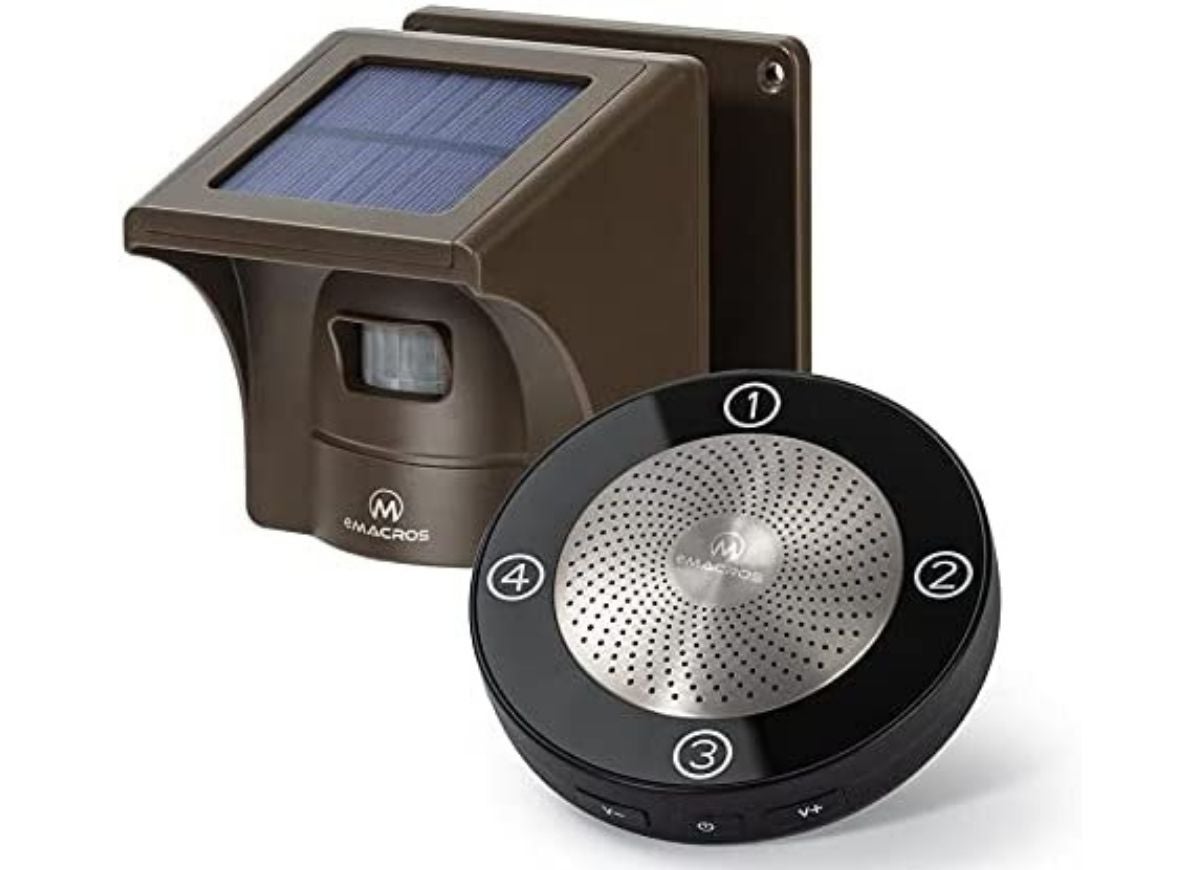
A sure way to deter interlopers on your property—or at least scare them off if they trespass—is to install sensors that sound shrill alarms when movement is detected. Driveway alarms can detect movement across your property line via magnetic probe or infrared beam. Though this method may sound when errant deer or raccoons visit your property overnight, it’ll also draw attention to uninvited humans.

Everything You Need for a Lush and Healthy Lawn
Keeping your grass green and your plants thriving doesn’t just take a green thumb—it starts with the right tools and supplies.
